

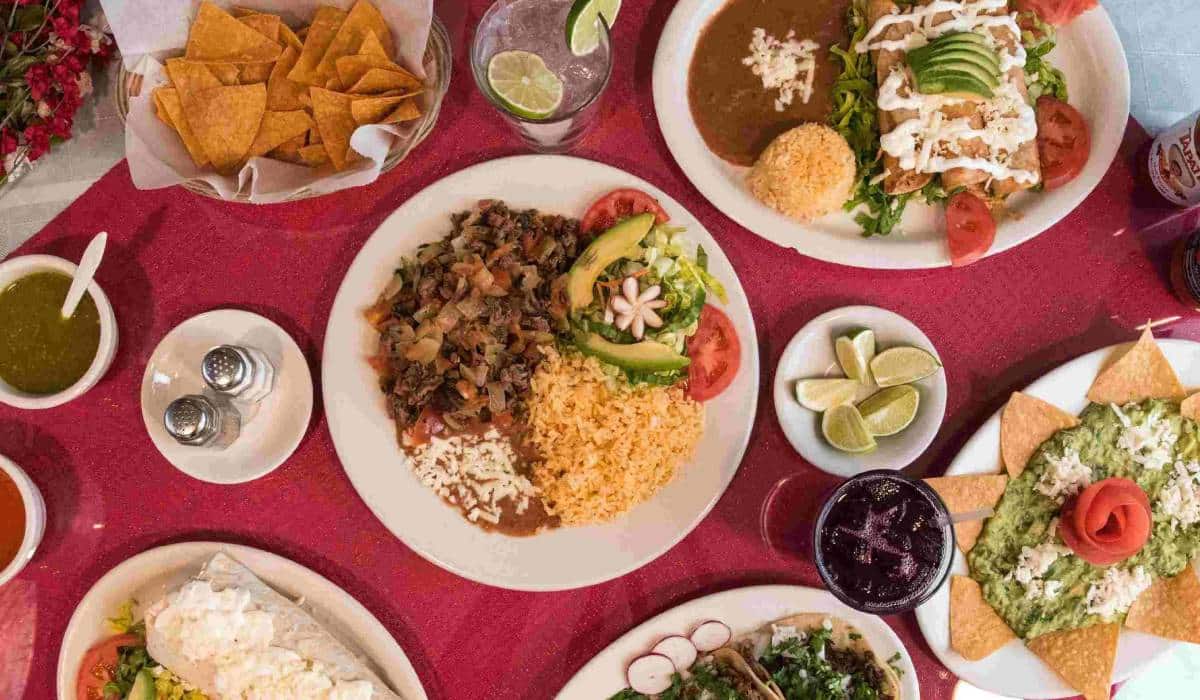
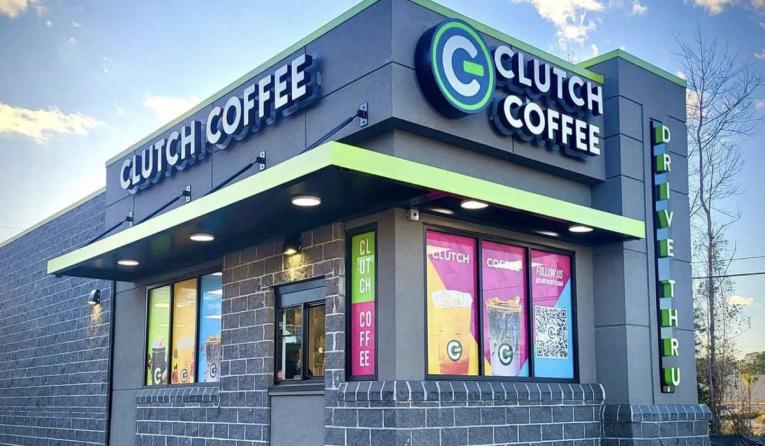
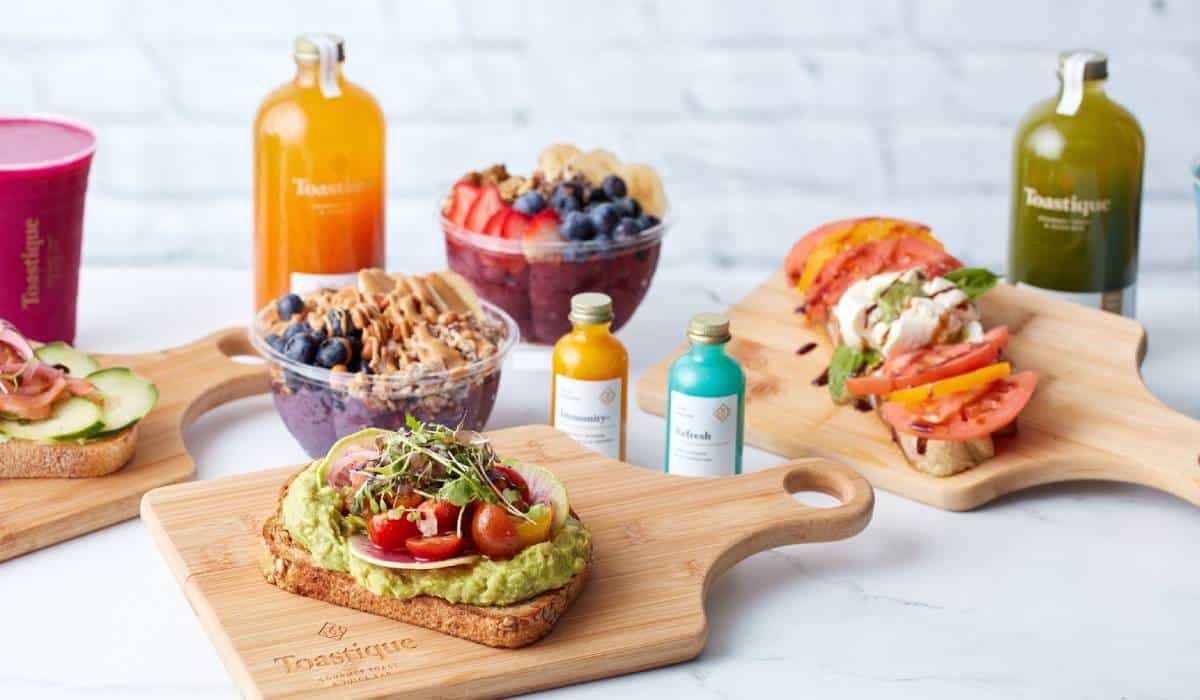
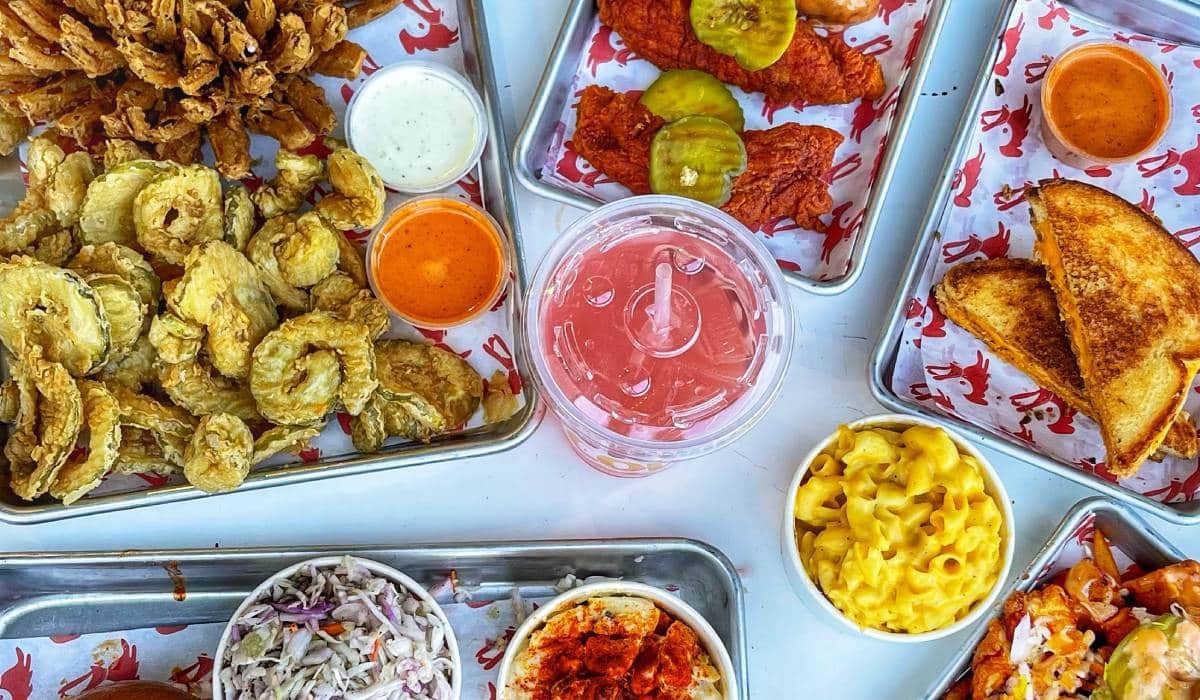
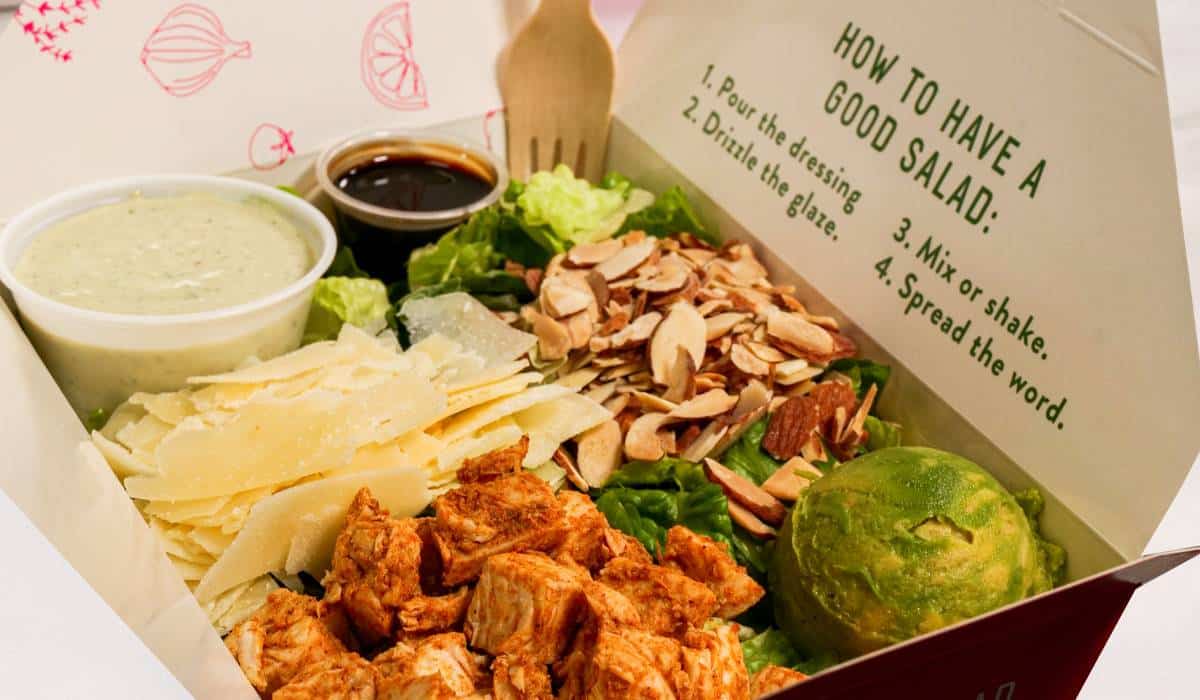
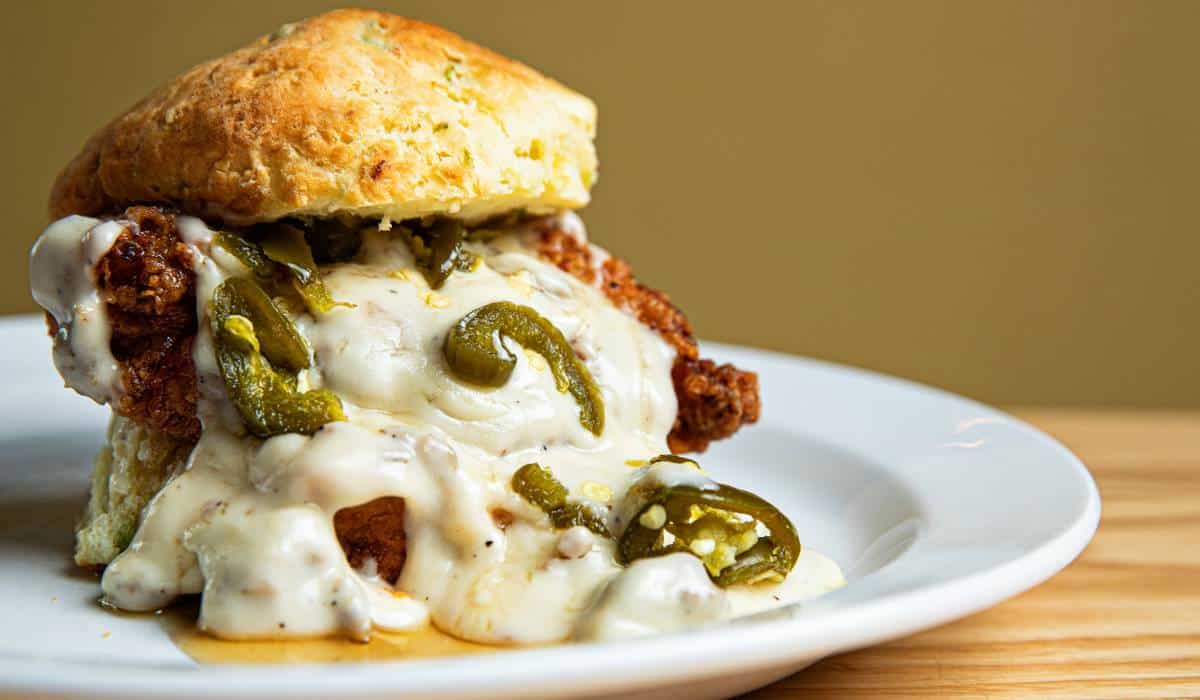
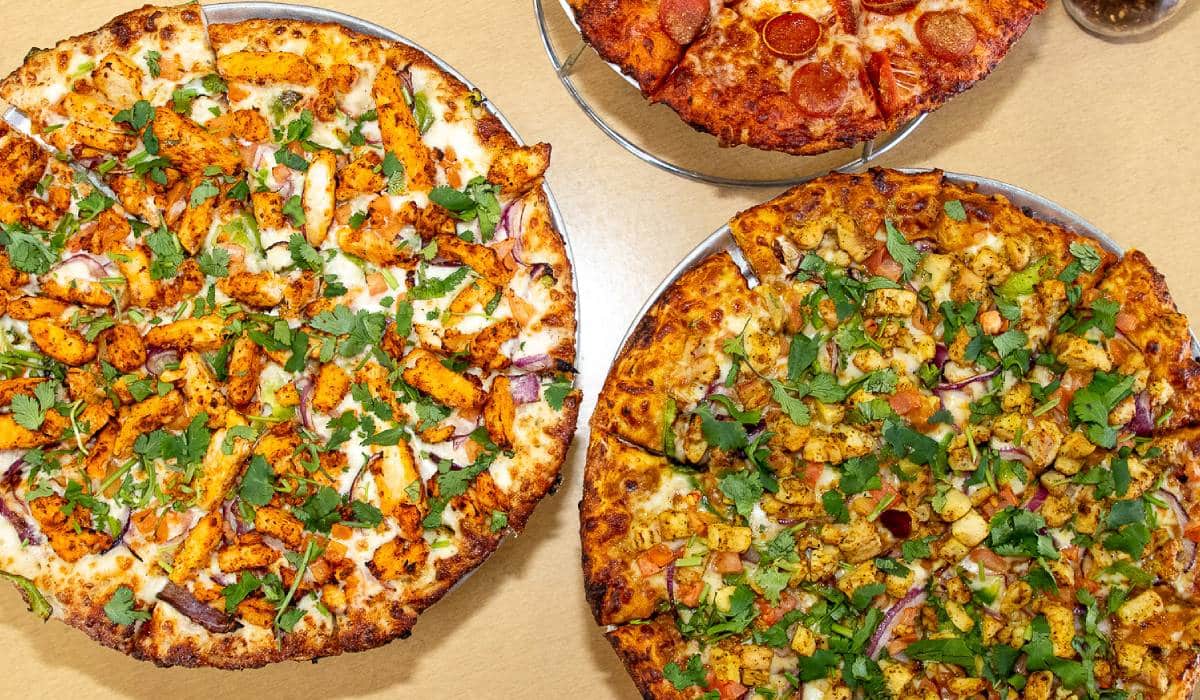
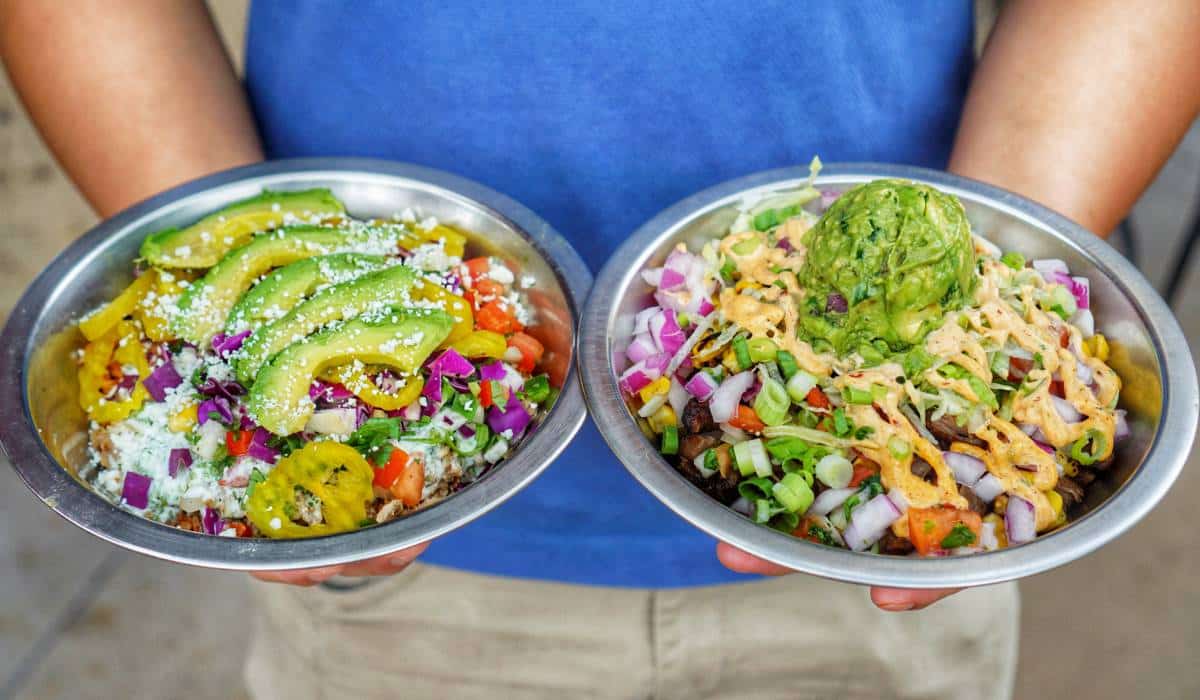
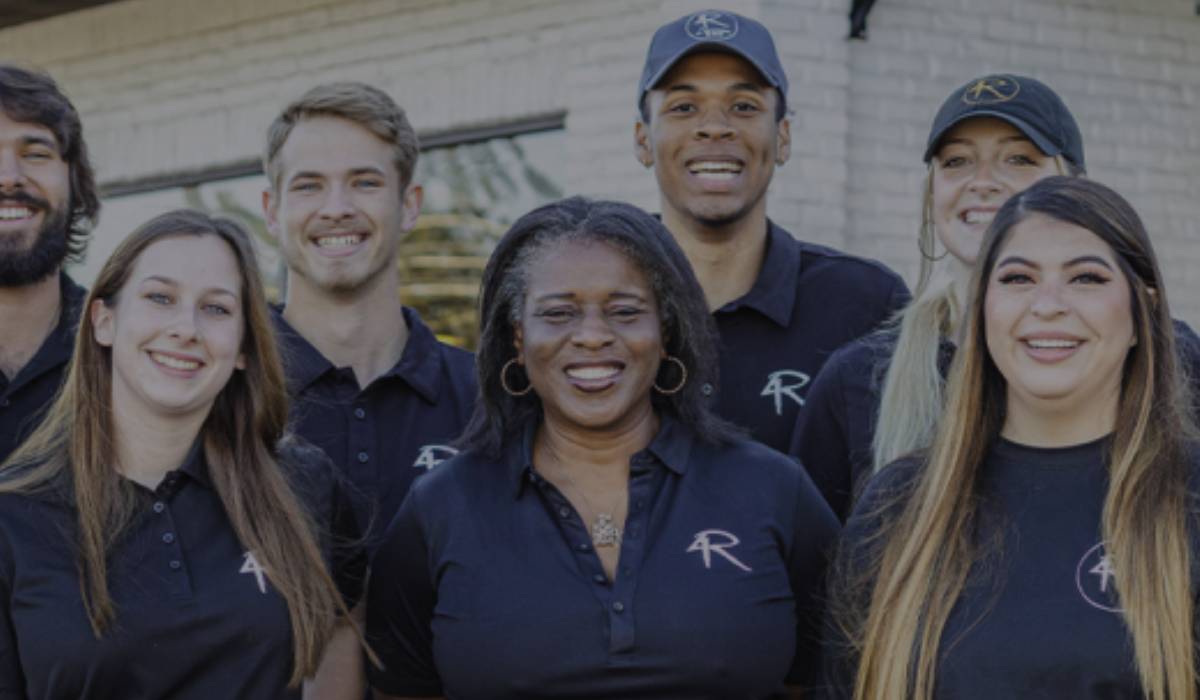
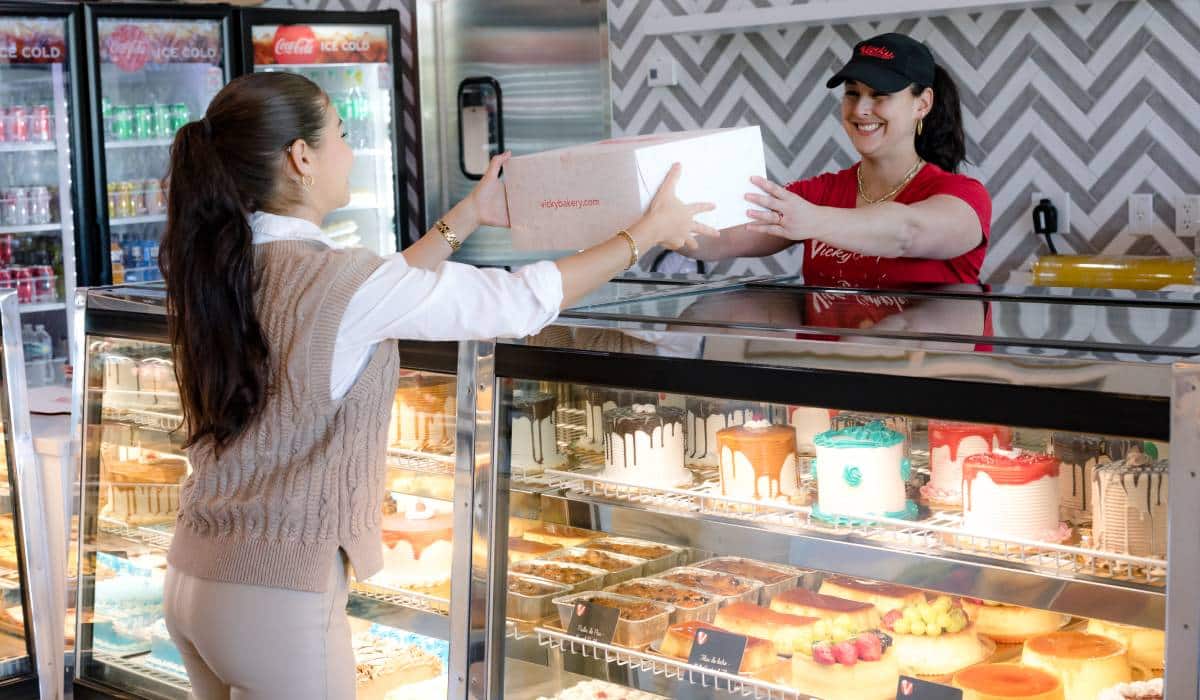
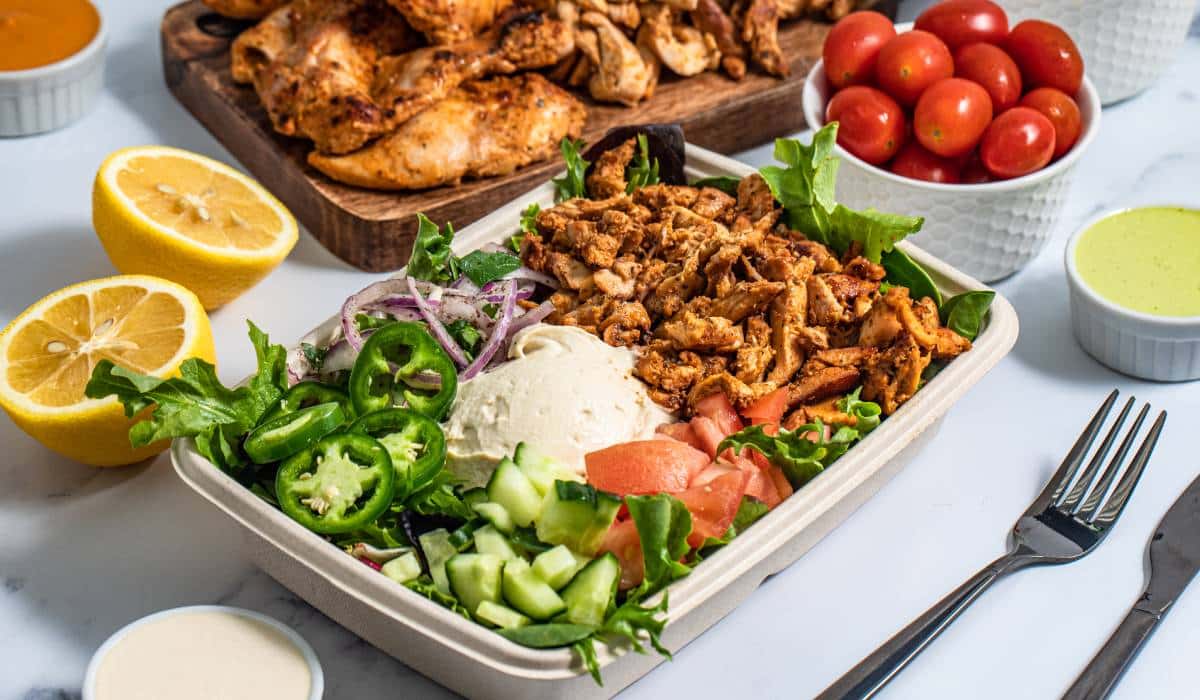
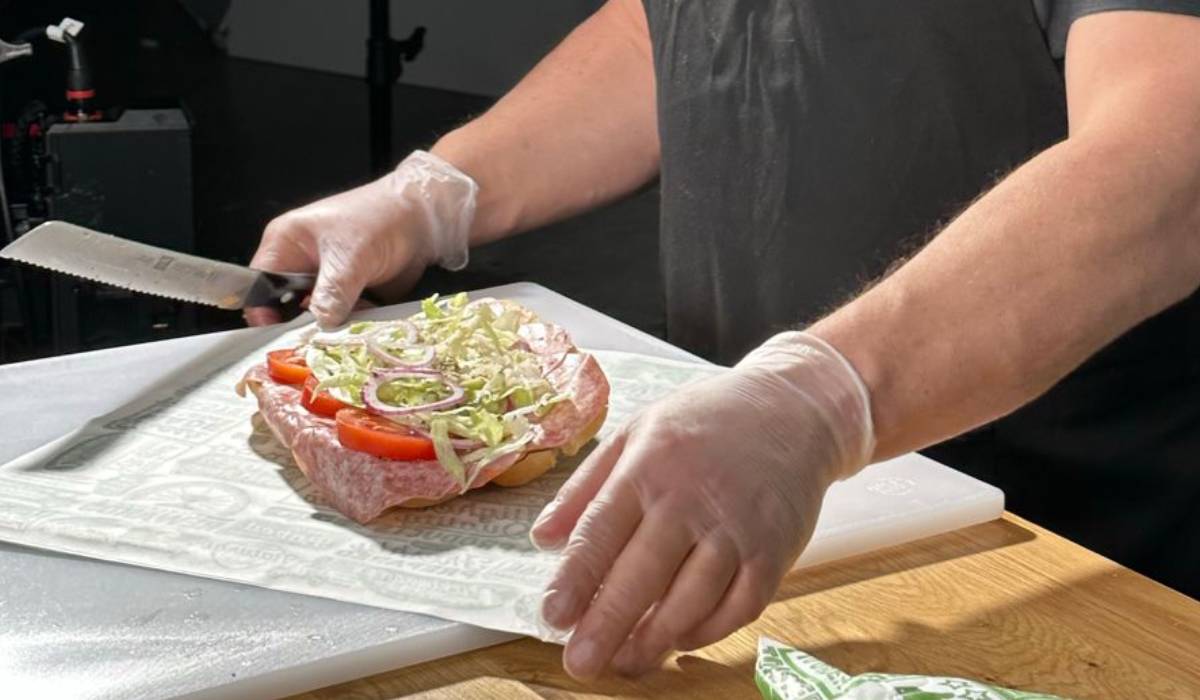
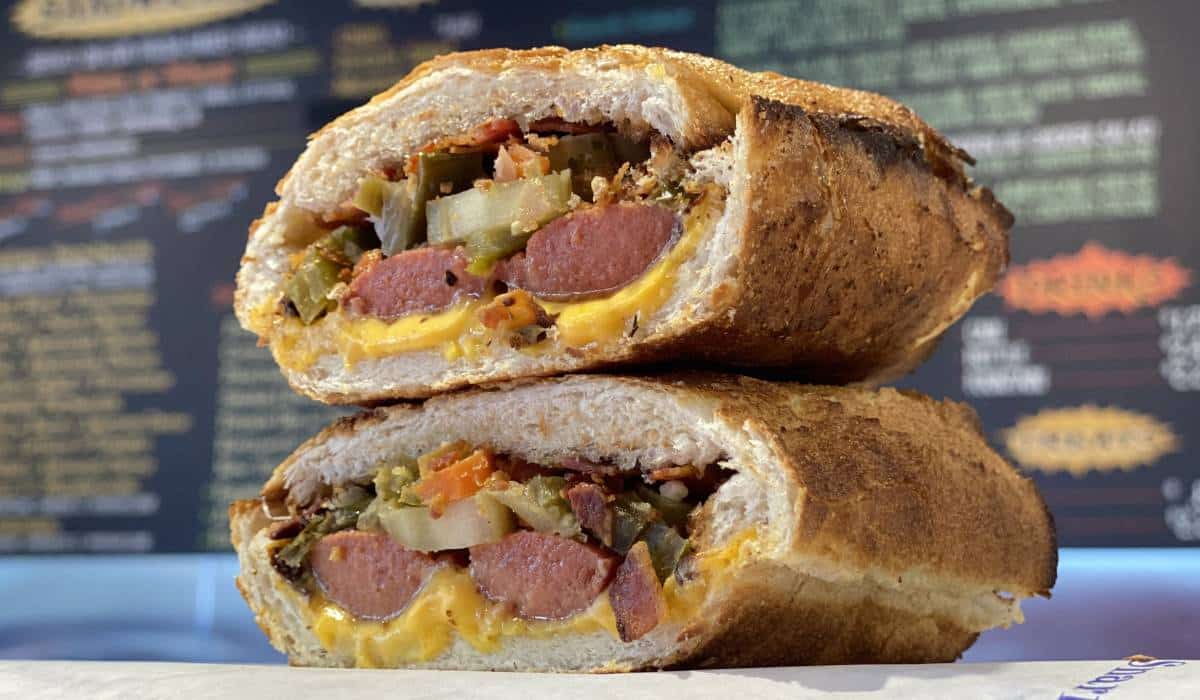
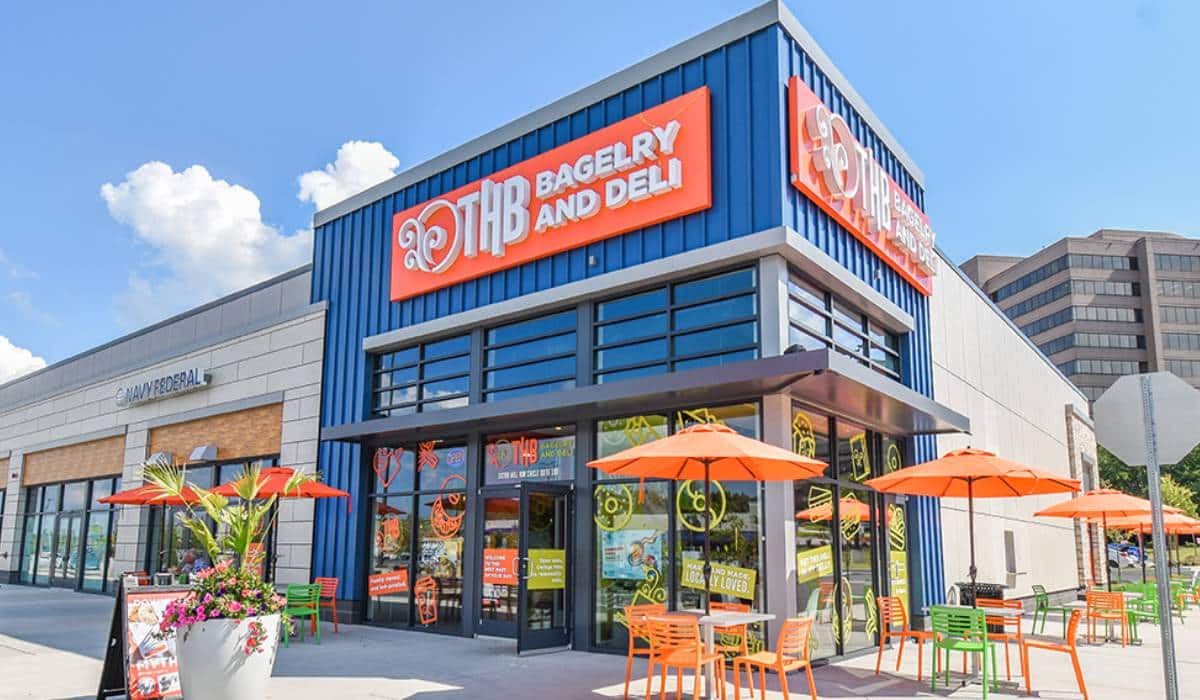
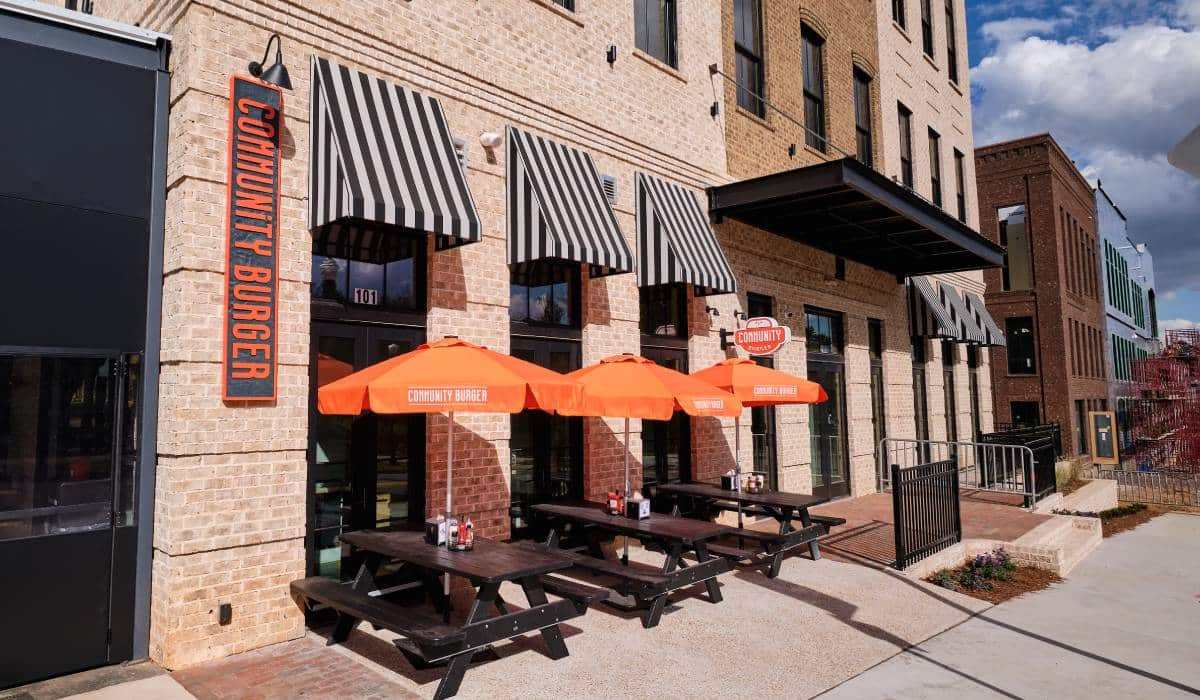
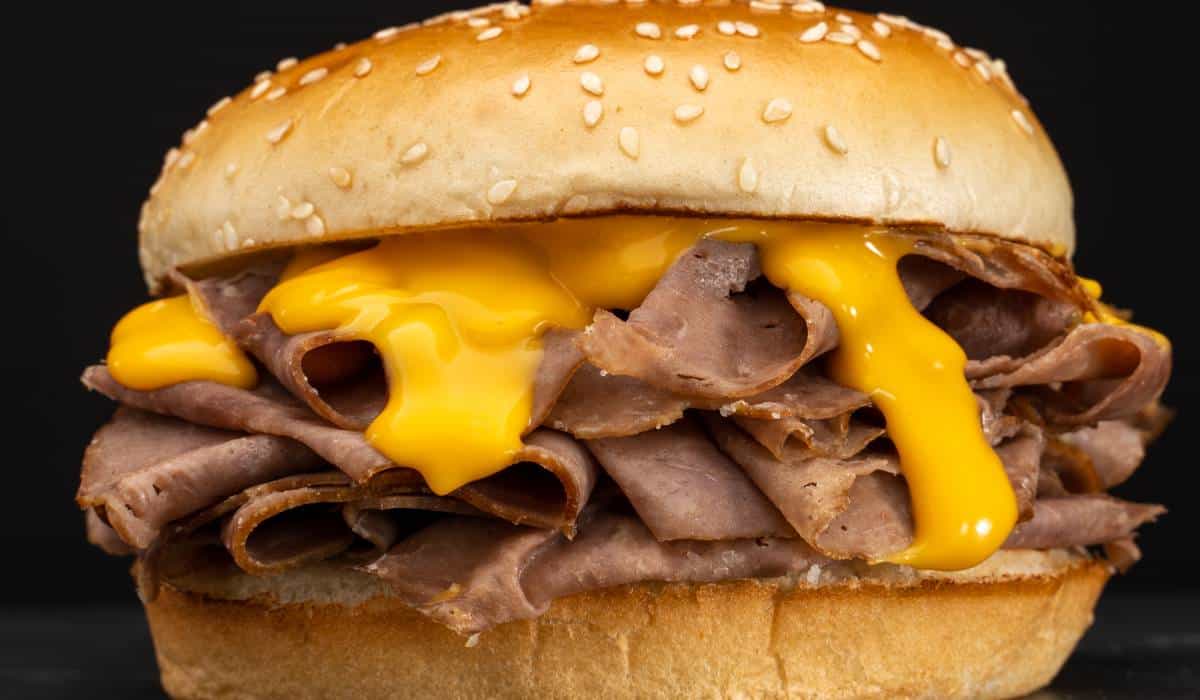
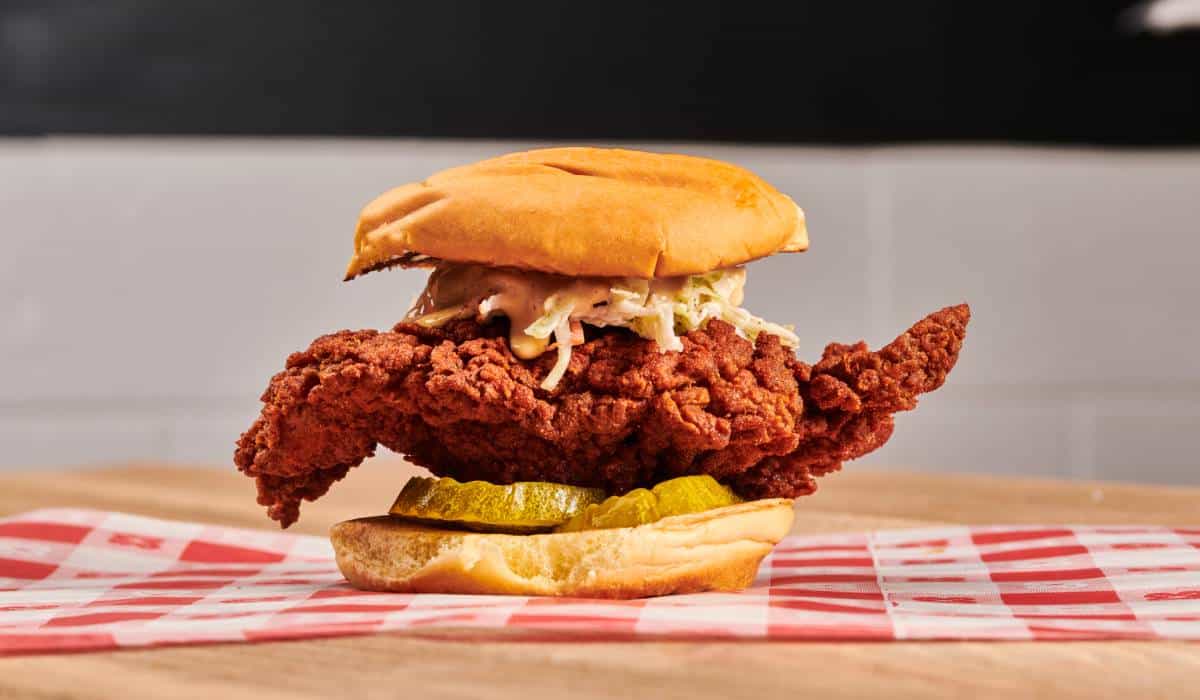
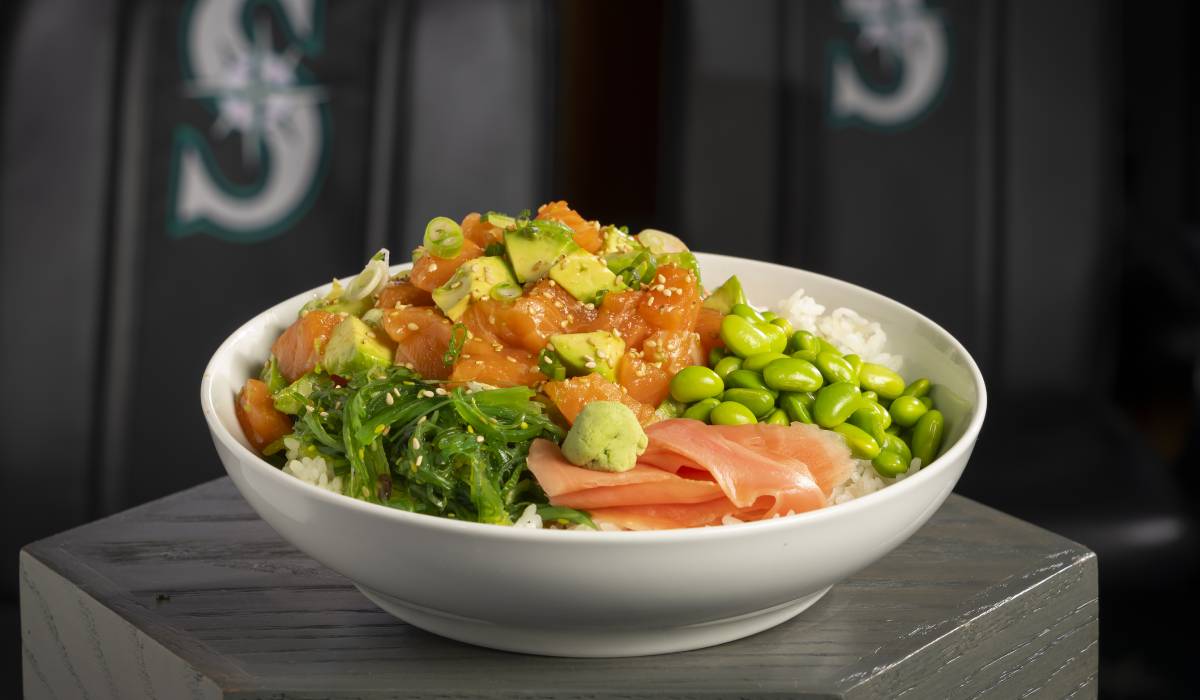
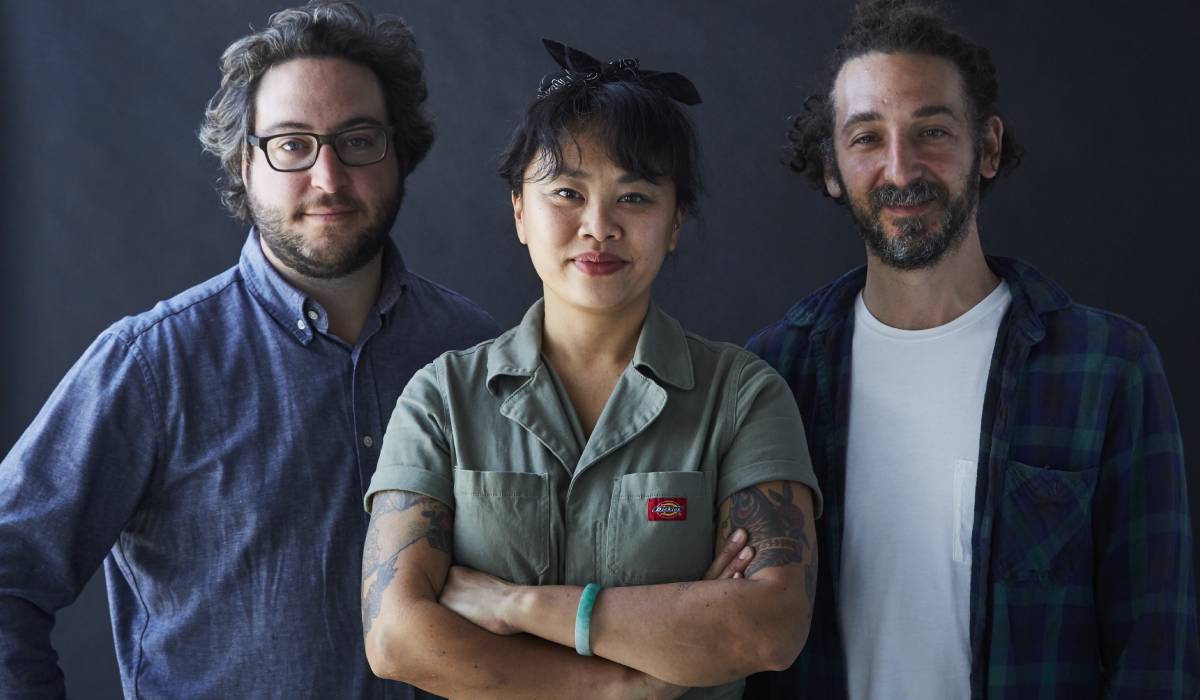
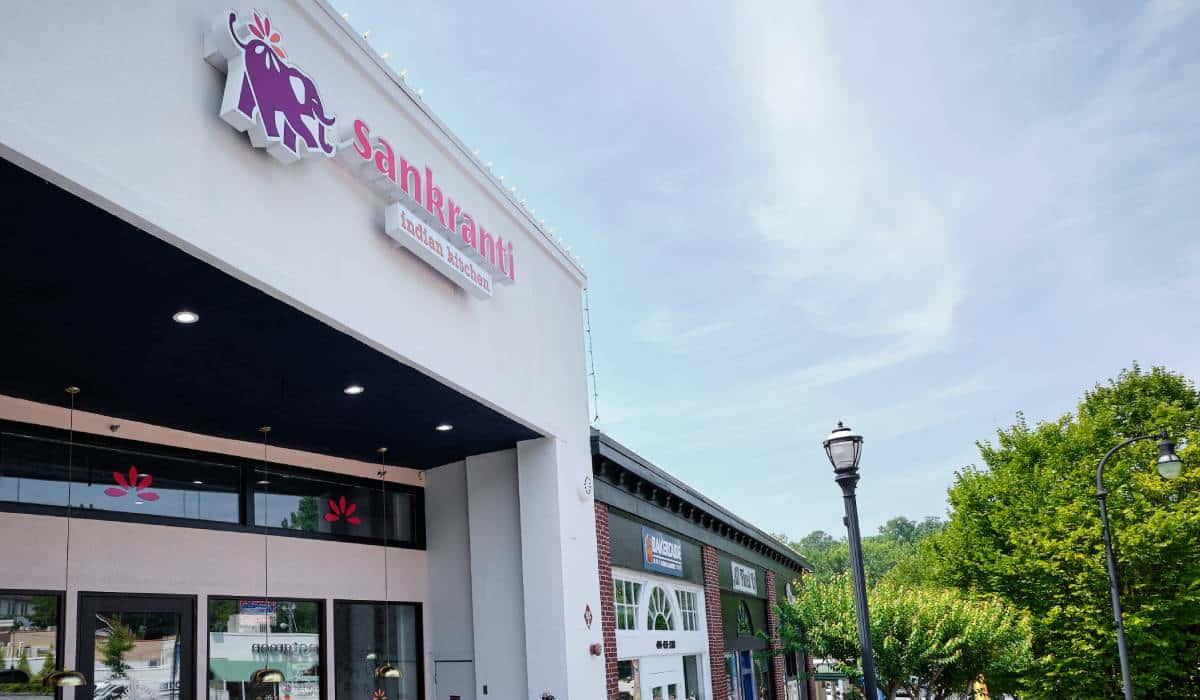
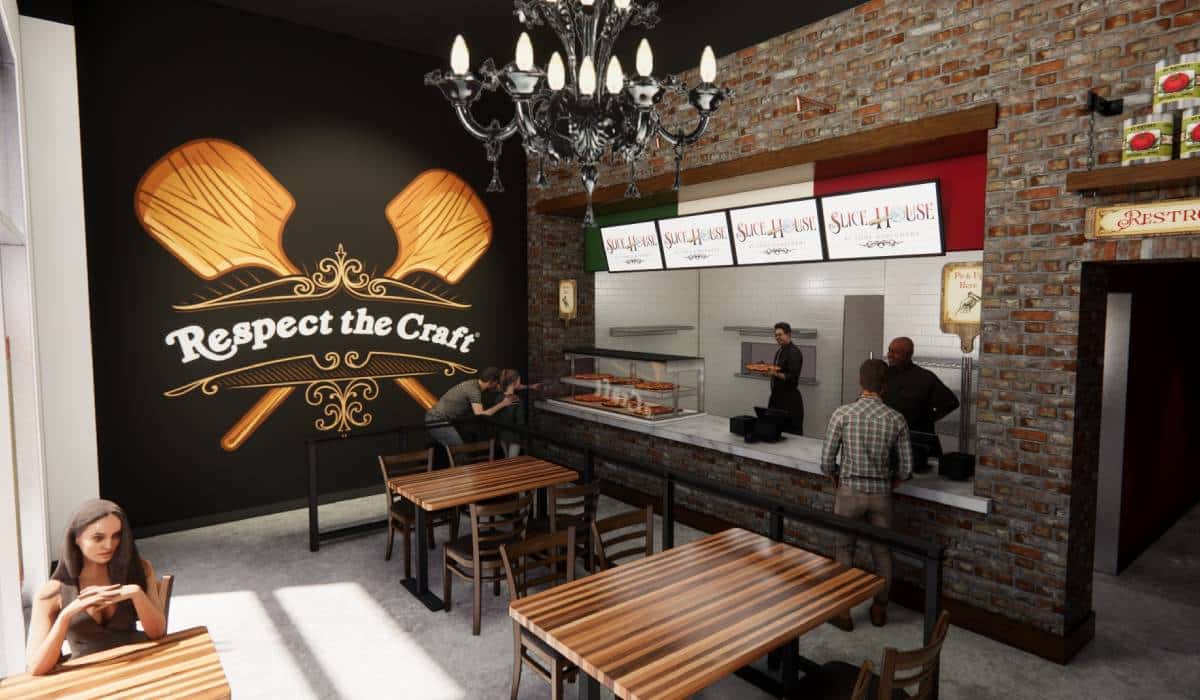
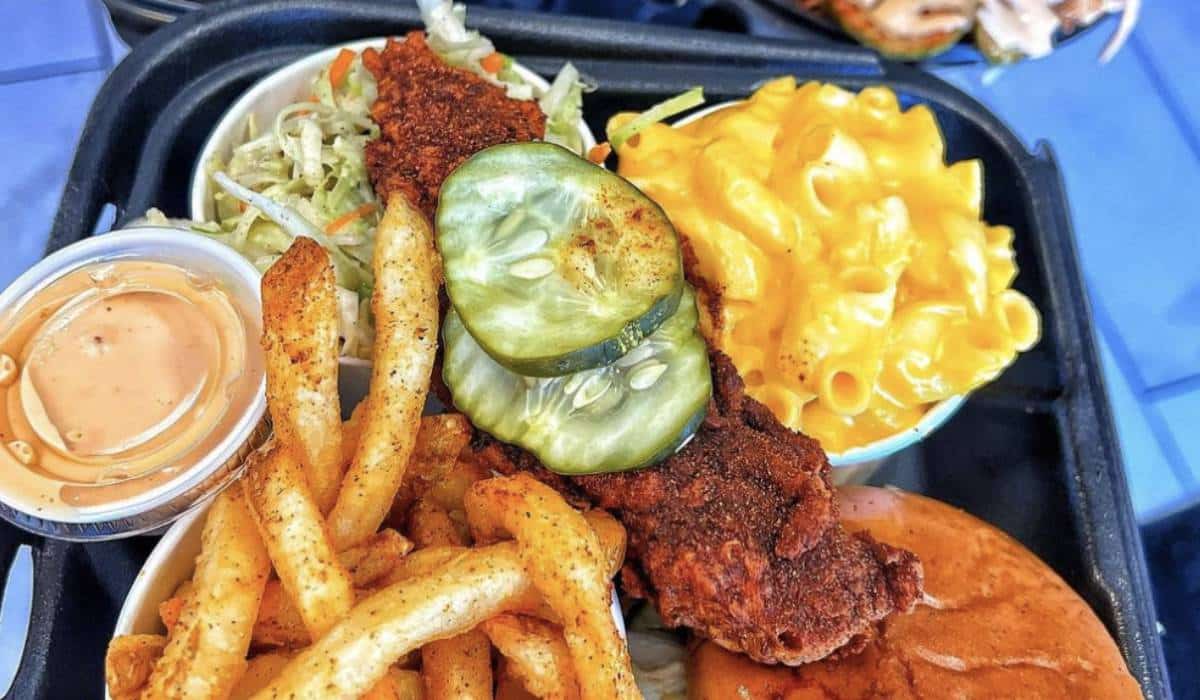
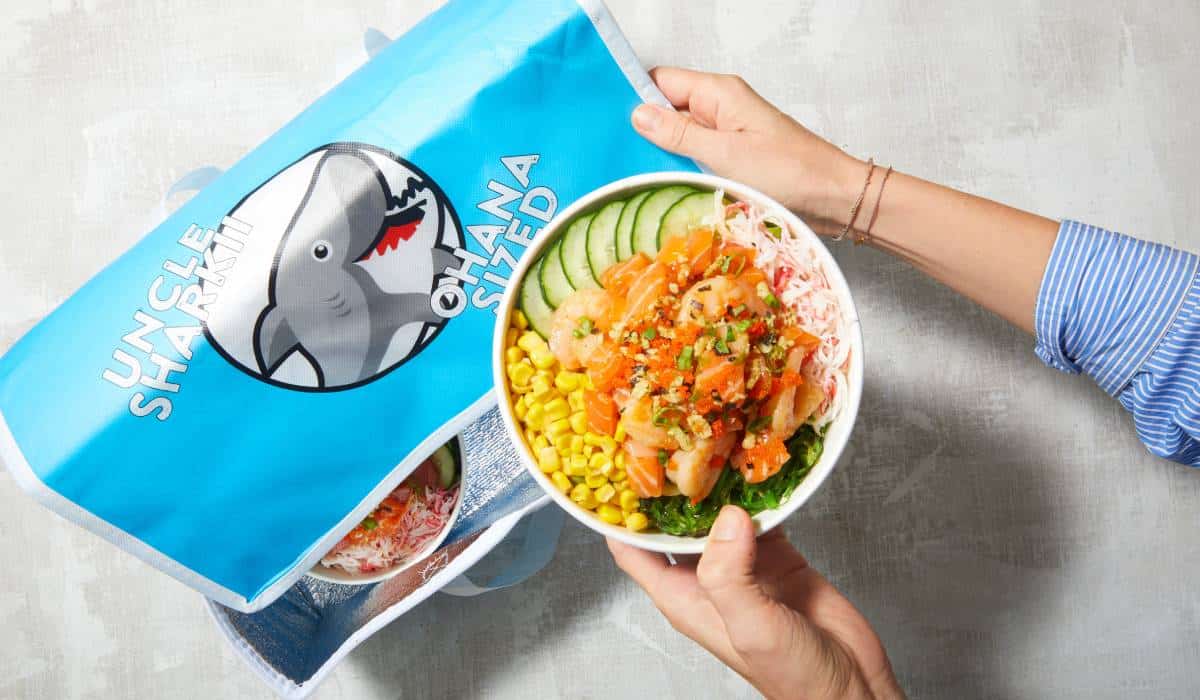

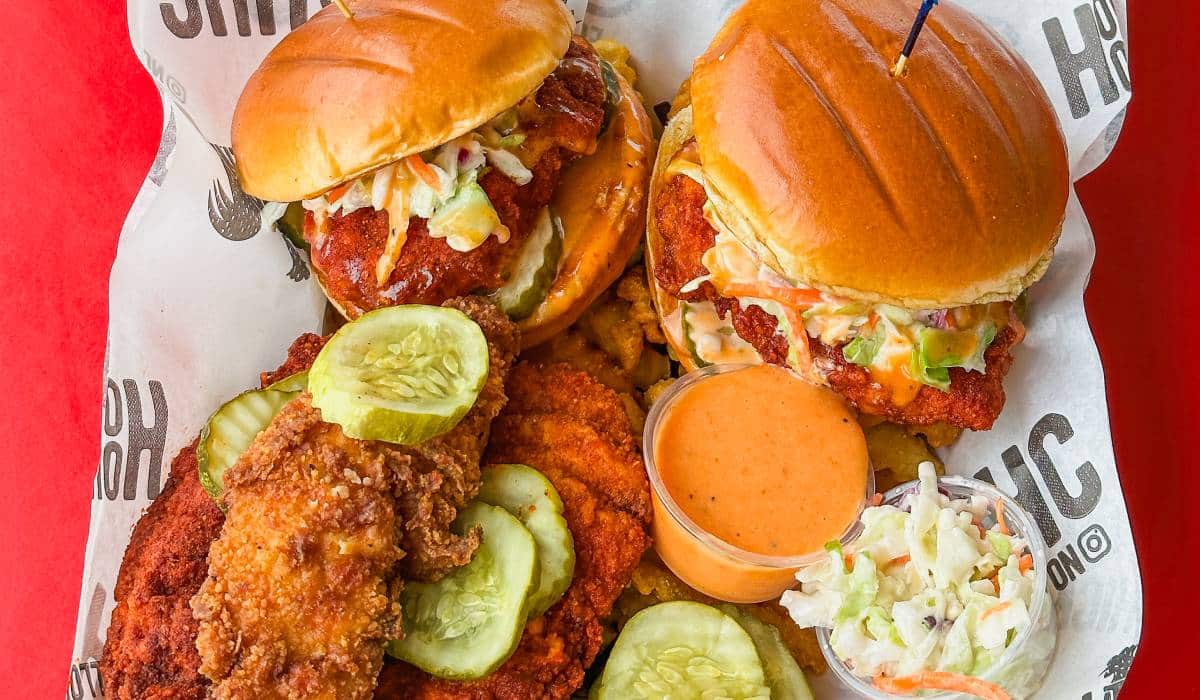
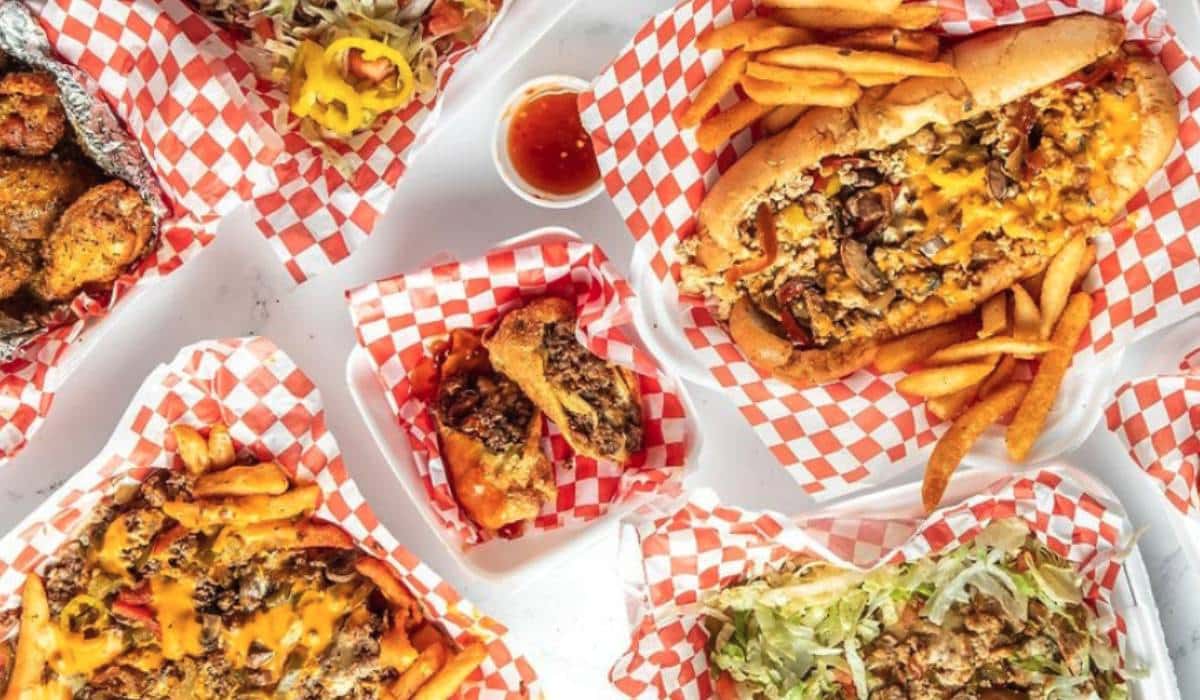
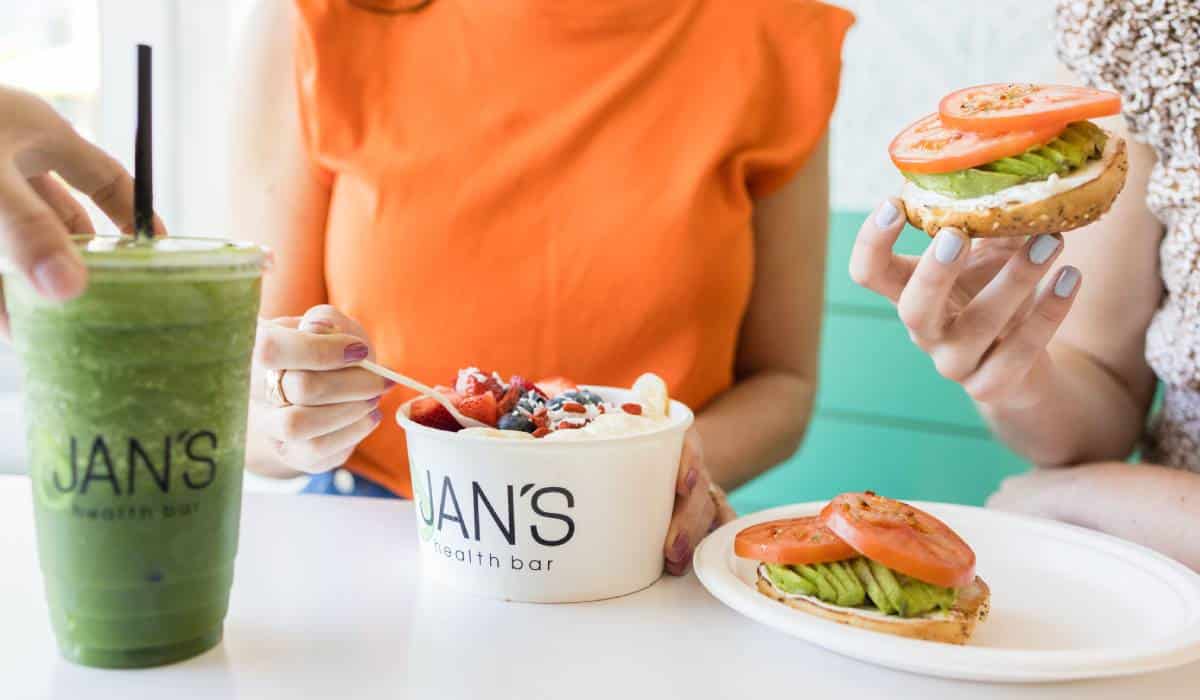

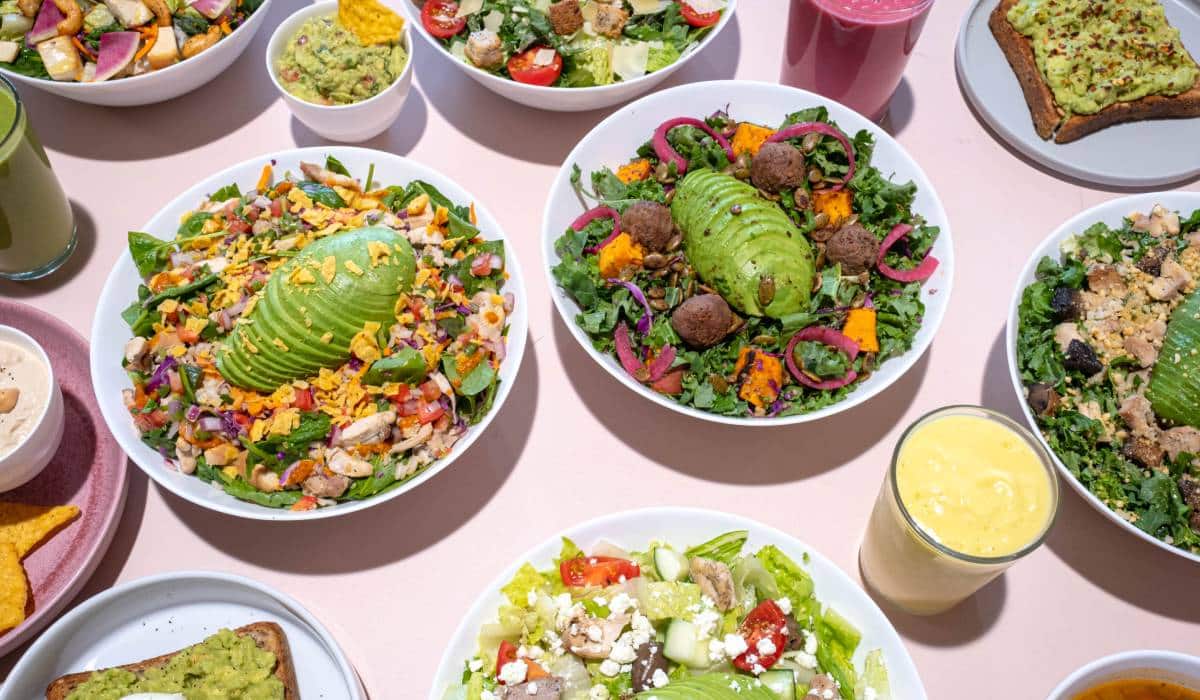
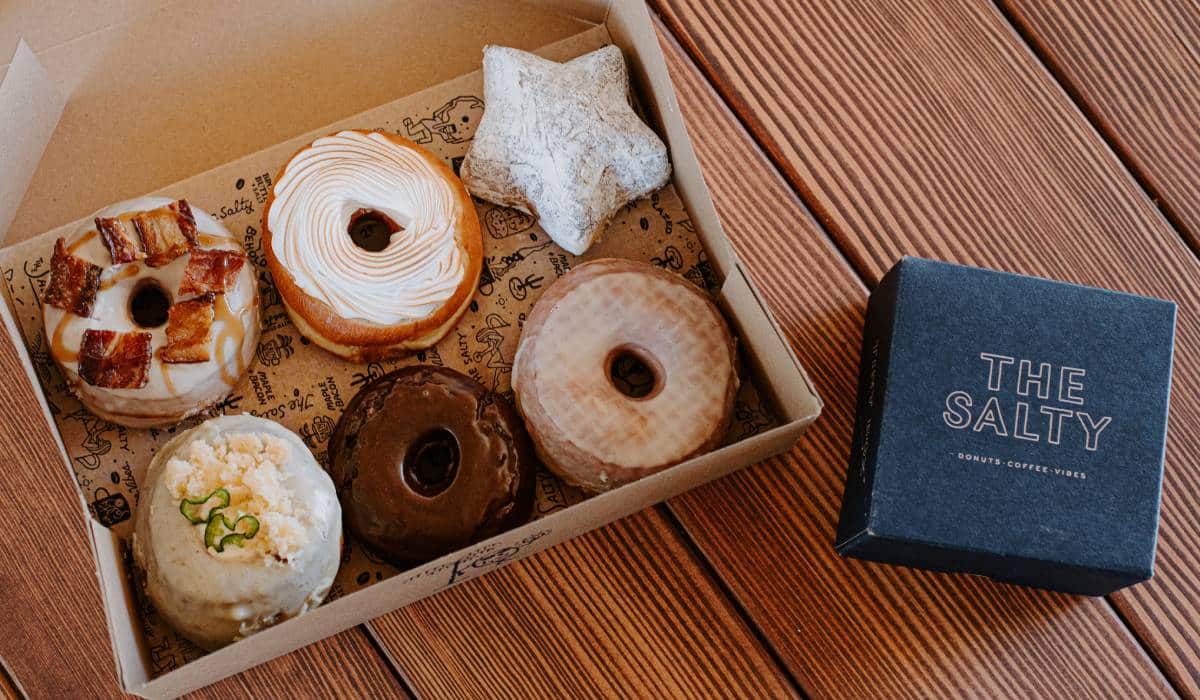
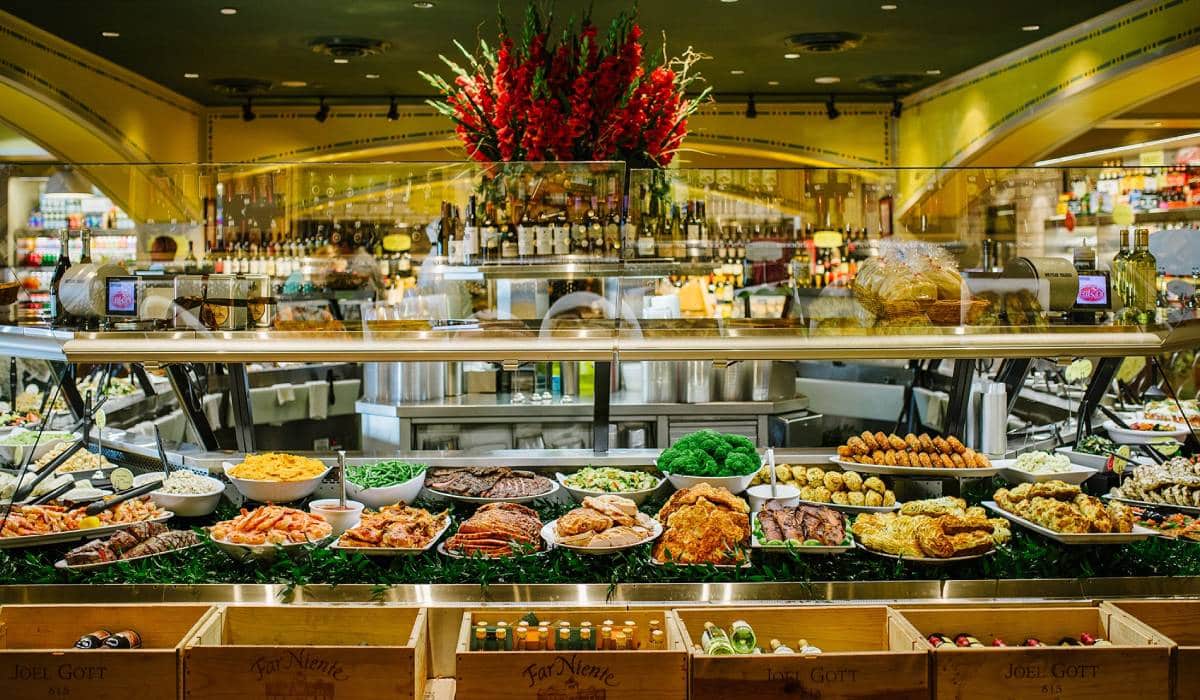
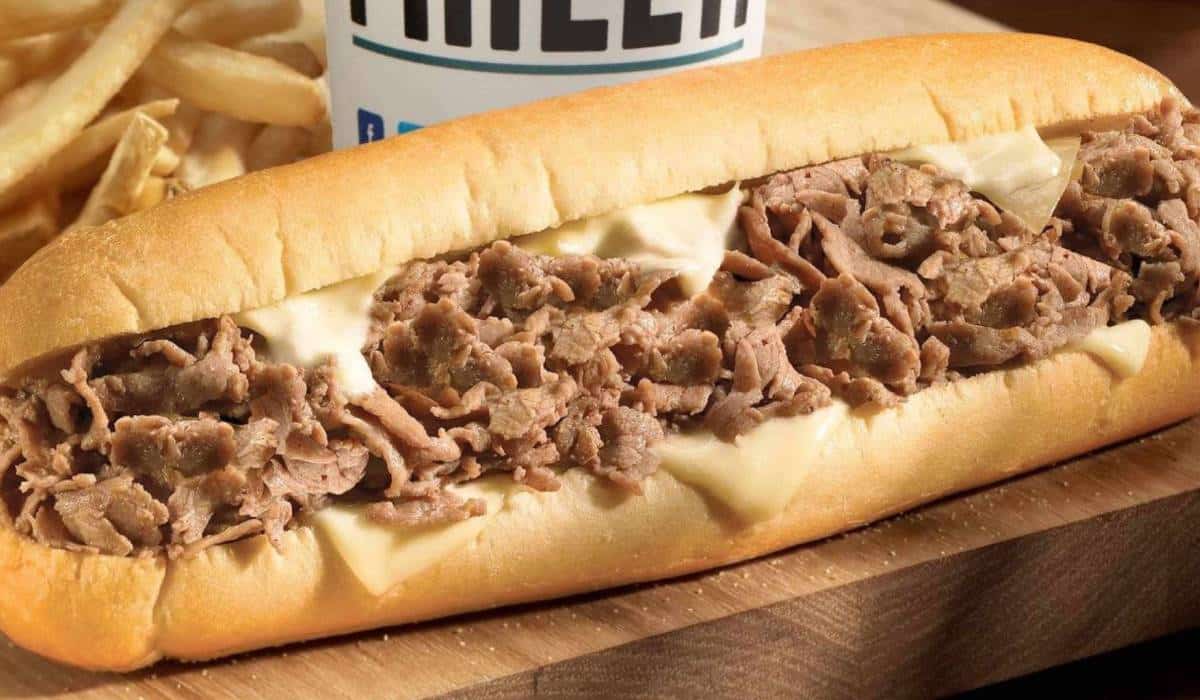

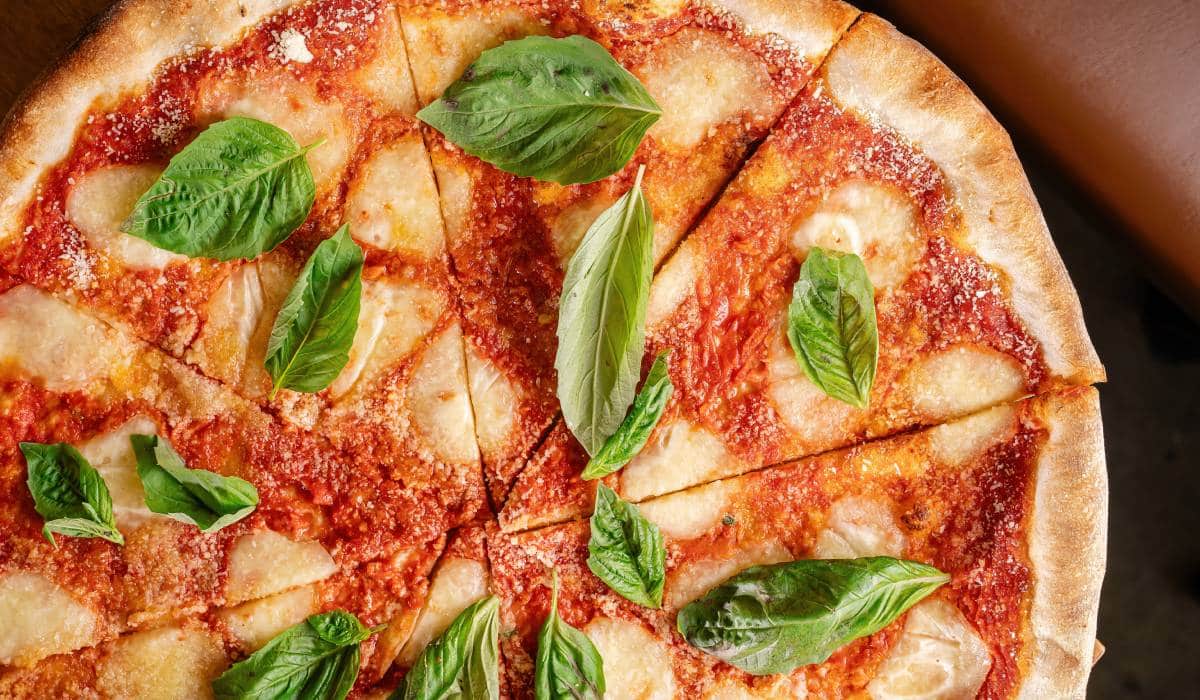
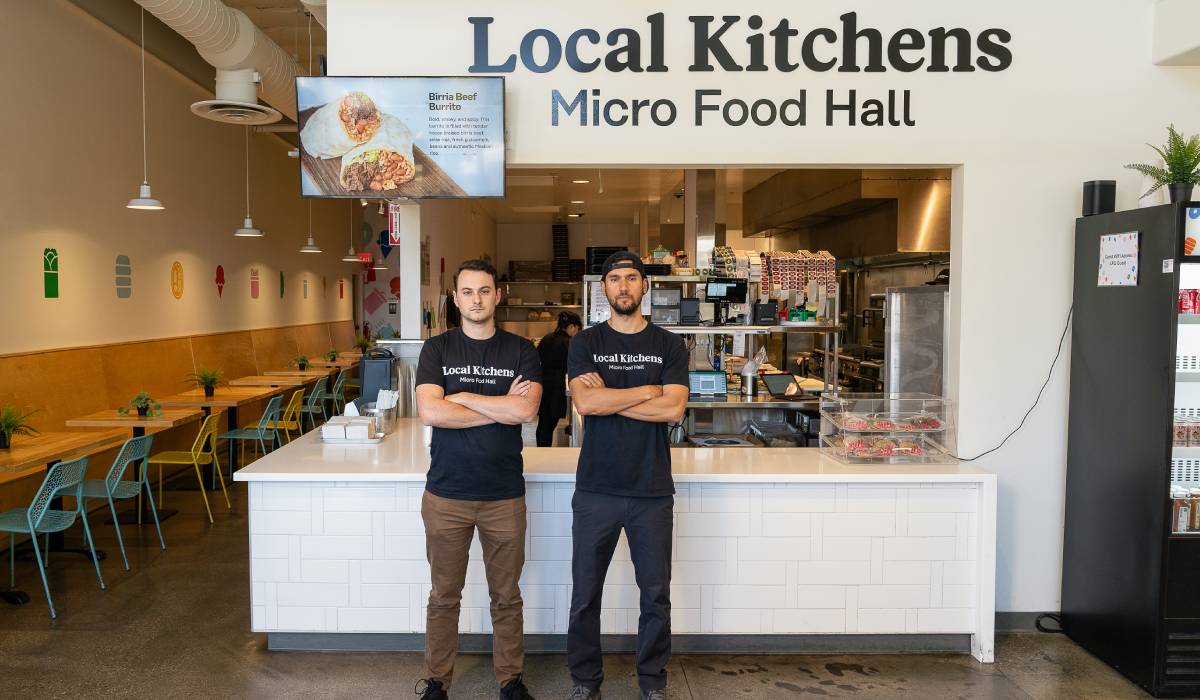
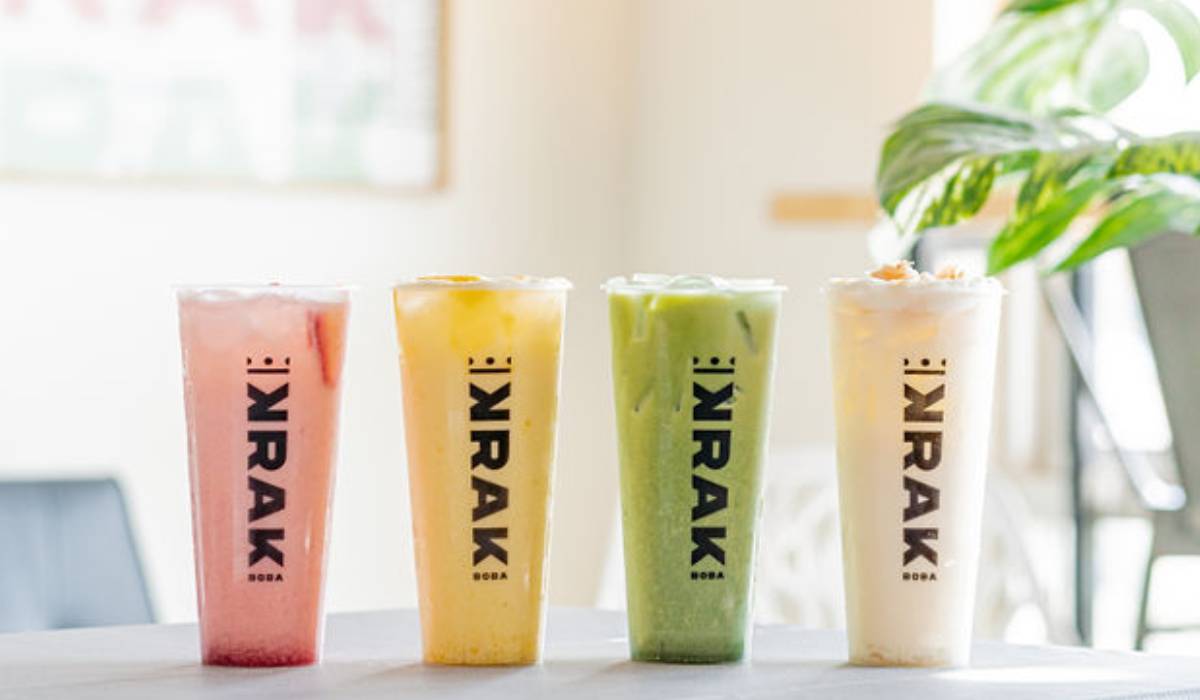
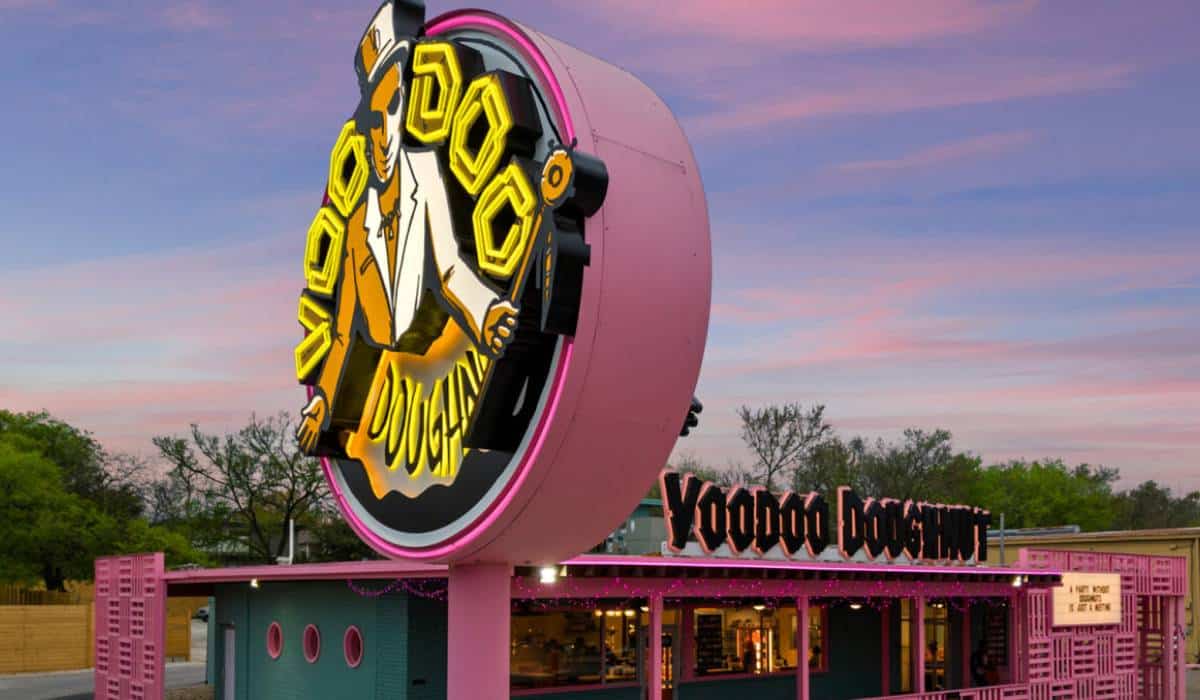
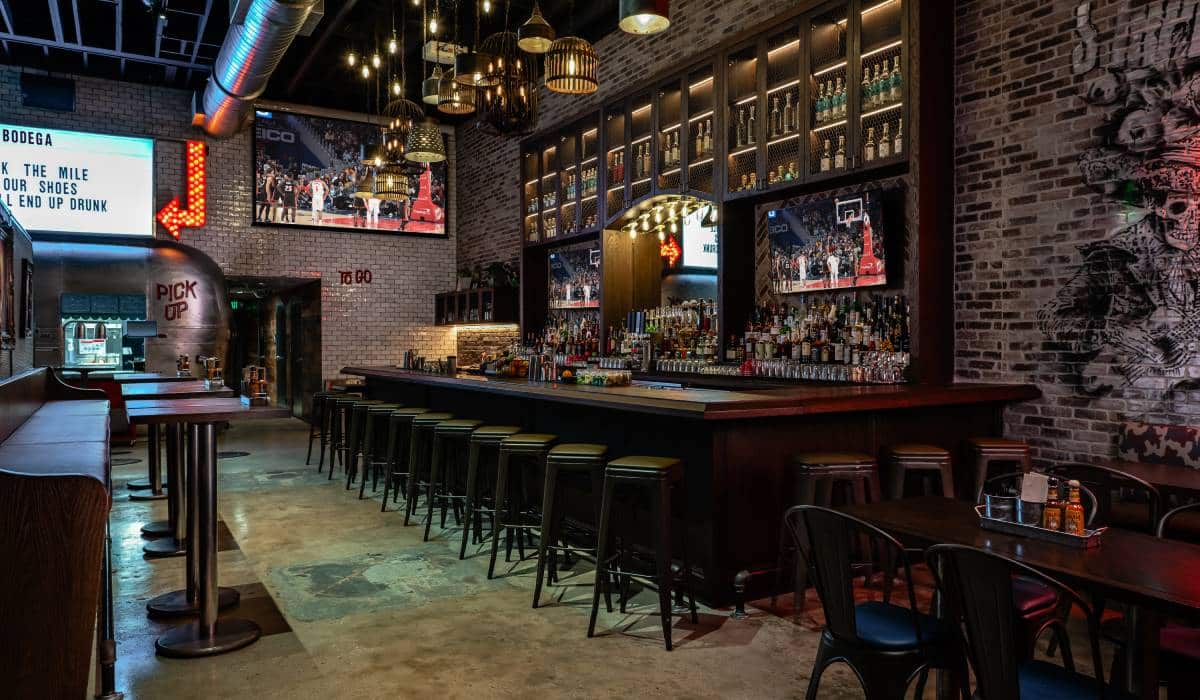
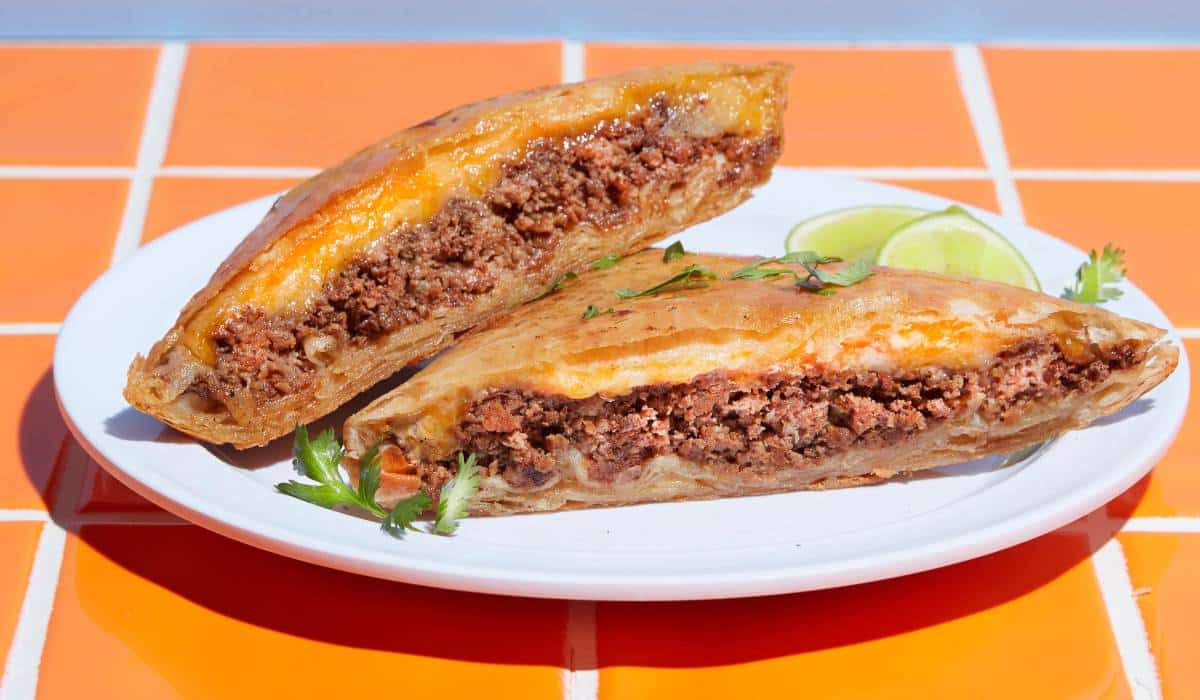
From Resilience to Rocketships
From the integration of cutting-edge technology and sustainable practices to menu innovations that cater to evolving tastes and dietary preferences, the fast-casual segment continues to not only survive, but thrive in a fiercely competitive market. Although the pandemic was officially declared over last year, the industry is still facing residuals from COVID’s impact, like permitting delays and commodity inflation. But that’s the thing about the restaurateurs—they’re quite resilient.
Now in its eighth iteration, our annual 40/40 List spotlights 40 brands with fewer than 40 locations that we believe hold the potential to become the next big success stories. This group has weathered the storm and is poised to thrive in what is undeniably the most dynamic operating environment in recent memory.
CHECK OUT PAST 40/40 LISTS:
Saigon Hustle
Headquarters: Houston, Texas
Units: 1
Long before becoming “mompreneurs,” best friends Cassie Ghaffar and Sandy Nguyen met
at the University of Houston. At the time, Nguyen ran a small Vietnamese restaurant, and Ghaffar had just entered the bar industry. Sharing a love for travel, eating well, and hustling to make something of themselves, the two became inseparable.
Twenty years, a brief stint in both wealth management
and franchising, multiple different cafes, and seven kids later, Ghaffar and Nguyen realized they needed to align their future goals together to have a balance of
everything they wanted in life: a legacy for their children.
“We wanted to be at soccer games but also build a brand,” Ghaffar says. “We took our combined experiences, put our heads together, and came up with a few concepts, Saigon Hustle being one of them.”
Cilantro Taco Grill
Headquarters: Chicago
Units: 15
Temoc Morfin, inspired by his family’s immigrant journey from Guadalajara, Mexico, sought to fulfill his American dream by opening a taco shop with flavors rooted in tradition. In 2013, Cilantro Taco Grill was born in Stone Park, Chicago, offering a menu featuring Mexican classics like tacos, burritos, and tortas, as well as signature dishes, all made with guests’ choice of protein. The restaurant also emphasizes creating wealth for families, with each of Morfin’s siblings opening their own stores, making his father proud.
A decade later, Cilantro Taco Grill has expanded to 15 locations and is on the brink of a major franchising initiative that aims to bring 1,000 outlets to markets worldwide in the next decade. To facilitate this growth, the brand has partnered with Fransmart founder Dan Rowe, known for his involvement in the expansion of successful chains like Five Guys, QDOBA, and The Halal Guys.
The idea for this partnership was influenced by global music artist Pitbull, who advocated for Latino-led brands that create opportunities for people of color to build wealth within the industry. Rather than starting a new restaurant from scratch, Rowe and Pitbull decided to join forces with Cilantro Taco Grill, a brand that aligned with their values and provided an authentic Mexican dining experience.
Cilantro Taco Grill stood out not only for its authenticity but also for its profitability. It boasts healthy margins, exceeding industry averages in labor and food costs, with an average unit volume (auv) of $1.4 million and high sales per square foot. The brand has successfully taken over former locations of other restaurant chains, such as Chipotle and Baja Fresh, demonstrating its adaptability.
The franchising strategy involves streamlining the menu, optimizing kitchen processes, and ensuring consistent sourcing of furniture, fixtures, and equipment. The plan is to expand in Chicagoland through corporate stores and joint-venture restaurants, then target the top 100 media markets in North America. Internationally, Cilantro Taco Grill aims to explore 15-20 trade areas, including Germany, the U.K., Dubai, Kuwait, and Saudi Arabia.
Clutch Coffee
Headquarters: Mooresville, North Carolina
Units: 10
Co-founder Darren Spicer’s journey into the world of drive-thru coffee began during his high school and college years when he fell in love with the interactions and people at coffee stands. Despite his graduation leading to a successful career in medical device sales, Spicer couldn’t let go of his passion for quick-service coffee. While still working his full-time job, he helped manage a Dutch Bros location in California and pursued a franchise opportunity. Unfortunately, the coffee chain decided to no longer offer franchises, but Spicer’s dream lived on.
Determined to follow his coffee drive-thru ideals, Spicer left his medical device sales career, taking an 80 percent pay cut, and co-founded Clutch Coffee Bar with two others. After a year and a half of hard work, the first Clutch Coffee shop opened in Mooresville, North Carolina, in March 2018. Spicer recognized the untapped potential of drive-thru coffee on the East Coast, particularly in the Southeastern markets.
Clutch Coffee differentiates itself through a strong emphasis on customer service, aiming to provide positive energy to its guests. Unlike some competitors, they use runners to take orders, greeting customers sooner and showing they are a priority. Their menu includes a wide range of offerings, such as coffee, milkshakes, iced teas, refreshers, and more.
With a growth plan focused on the Carolinas and Georgia, Clutch Coffee eyes 20 units by the end of 2024. It has a strategic partnership with a developer partner to expedite its expansion, securing a solid pipeline for the coming years. While it’s received franchise inquiries, it’s current focus remains on opening company-owned stores, with franchising potentially considered in the future.
Spicer believed the new development strategy with purpose-built drive-thru-only buildings is more repeatable and cost-effective than the first two stores, which were renovations of existing spaces. These new shops offer ample storage space and efficiency for employees.
Toastique
Headquarters: Washington, D.C.
Units: 22
Toastique is an up-and-coming franchise playing in a better-for-you segment that’s quickly growing as consumers seek healthier choices in the wake of COVID. The fast casual was founded by Brianna Keefe, a former D-I athlete who gained an appreciation for wholesome meals on the go. The brand is known for its artisanal toast-based foods, all-natural smoothies, cold-pressed juices, and açaí bowls. As of November, the fast casual had locations based in Washington, D.C., Utah, California, Colorado, Florida, Maryland, New Jersey, Pennsylvania, and Virginia. In early October, Toastique announced a three-unit agreement to expand into Minnesota. The Twin City franchisees—Scott and Laura Seabloom—both bring relevant experience to the brand. Scott’s background comes from the retail technology industry while Laura has a master’s degree in holistic health studies and holds a health coaching certification. Some notable openings in 2024 include Los Angeles; Boca Raton, Florida; Austin; Atlanta; Charlotte, North Carolina; and Las Vegas. In May, Toastique revealed that it launched a guest engagement program on Paytronix’s platform after using the company for its mobile app and online ordering services. Back then, the chain’s online orders accounted for 20 percent of sales. The restaurant also noted that it was looking to launch a subscription service in the near future.
Crimson Coward Nashville Hot Chicken
Headquarters: Los Angeles
Units: 9
Crimson Coward’s open kitchen ensures every meal is cooked to order, eliminating the need for heat lamps. The brand also puts significant effort into standardizing its menu, stores, and staff to maintain consistency in service across all locations, no matter where it lands in the U.S.
The company traces back to 2019 when Ali Hijazi, a Los Angeles native, fell in love with Nashville hot chicken. Hijazi’s path led him to create a food lab in his garage, take trips to Nashville for inspiration, and collaborate with chefs and restaurants to develop a unique blend of heat-inducing spices. Through extensive testing with family and friends, he honed his recipe and launched Crimson Coward in Downey, California.
Since its inception, the fast casual has been on a rapid expansion trajectory, popping up in various locations across the U.S. By early 2024, the brand anticipates having nine stores in operation in California, Michigan, Texas, and Virginia. Its ambitious goal is to grow even further, aiming to reach a total of 200 stores in the future.
The Good Salad
Headquarters: Silicon Valley, California
Units: 3
With the Good Salad, customers can build salads tailored to their exact flavor and nutritional preferences without feeling financial strain, as the restaurant credits them back when toppings are removed. One of the chain’s key strengths is its commitment to maximizing flavor by making everything in-house.
In 2023, the brand expanded from a single takeout-only location to four, including a 3,500-square-foot central production kitchen that prepares and distributes ingredients daily to its retail outlets. This central kitchen also serves as a significant contributor to the catering business. The Good Salad has achieved and maintained a minimum 4.8-star rating on major platforms like Yelp, Google, and DoorDash without the need for extensive marketing campaigns. Its growth has primarily been driven by word of mouth and loyal repeat customers.
This year, The Good Salad plans to leverage its experience and operational optimization in salads to venture into other menu categories and expand into new cities. The brand is self-funded and committed to maintaining consistency across all locations.
Founded by Sanad Al Souz, an engineer who moved to the U.S. as a refugee in 2012, the company emerged from a failed BBQ-focused meal kit venture. Sanad’s inspiration came from observing the popularity of salad stations in corporate cafeterias. In 2021, he teamed up with a local chef and transformed a warehouse into a commercial kitchen, offering online salad orders with a pick-up window. The concept quickly gained traction, leading to its current success.
Vicious Biscuit
Headquarters: Mount Pleasant, South Carolina
Units: 7
Vicious Biscuit has made a disruptive entry into the breakfast and brunch segment by challenging traditional comfort food norms. This concept blends the appeal of fast-casual dining with the expectations of full-service establishments, creating a unique dining experience.
The menu at Vicious Biscuit, originating from Charleston, South Carolina, features creative and indulgent dishes like The Fat Boy, The Flame Thrower, and The Vicious, alongside Southern classics like Sweet Puppies, Beignets, and Shrimp and Grits. To complement these offerings, the restaurant serves freshly squeezed mimosas, craft cocktails, and boasts a Jam Bar featuring signature jams and house-made butters for the ultimate biscuit pairings.
Since its inaugural location in Mount Pleasant, South Carolina, in 2018, Vicious Biscuit has expanded its footprint, with five additional restaurants and a seventh in development, set to open in early 2024.
Vicious Biscuit’s origin goes back to 2017 when veteran restaurateur George McLaughlin, inspired by a food critic’s glowing review of a local caterer with a biscuit-focused food truck concept, connected with the chef behind the concept, Michael Greeley.
Together, they envisioned expanding Vicious Biscuit into brick-and-mortar quick-serve locations, leading to its successful launch in December 2018.
The chain’s growth strategy extends to franchising, with plans to expand its footprint to 75 locations within the next five years. The brand partnered with franchise brand accelerator Pivotal Growth Partners to lead its franchise growth and development. Around 40 units were awarded in 2023. Franchise opportunities are available for both single and multi-unit investors, with average unit volumes of $2.5 million for prototype locations and an initial investment ranging from $744,400 to $1,133,750.
Curry Pizza House
Headquarters: Fremont, California
Units: 24
Curry Pizza House founder Gursewak Gill started his culinary track after leaving a trucking background. As a first-generation Indian American, he was inspired by his family’s practice of adding spices and curry to their Friday night pizzas. This led to his experimentation with pizza dough, original sauces, and recipes, ultimately giving birth to Bombay Pizza House in Union City, California. Tragically, the original restaurant burned down in a fire, but Gursewak persevered and, in 2013, partnered with Gurmail “Romy” Gill to rebrand it as Curry Pizza House.
The menu at Curry Pizza House is a fusion of Indian and contemporary flavors, featuring unique creations like the Curry Chicken Masala Pizza, Palak Paneer Pizza, and Shahi Paneer Pizza, alongside classic pizza styles, gluten-free and vegetarian options, and thick and thin crusts. It also offers marinated wings and a variety of sauces, along with a wine and beer menu.
Over the years, the menu has evolved to incorporate different flavor profiles from European and Asian cities, attracting a diverse customer base. The brand’s success lies in its ability to cater to different demographics and communities. For example, areas with a South Asian population favor the Vegetarian Pizza, while cities with Northern Indian and non-vegetarian populations prefer other styles.
Recognizing the appeal of its concept beyond South Asians, Curry Pizza House decided to expand through franchising, partnering with a law firm specializing in franchising to create a program in about 18 months. The brand now has over 40 signed franchise locations in California, Texas, Nevada, Oregon, and Washington, with plans to expand further into Arizona, Utah, Colorado, and select East Coast cities. The company’s goal is to add 100 more stores in the U.S. in the next two to three years.
The franchise program offers real estate and construction expertise, modern restaurant design packages, operational and training standards, and lending partners. Ideal locations range from 1,500 to 2,600 square feet with pickup windows, including conversions.
Überrito
Headquarters: Houston, Texas
Units: 9
Überrito prides itself on creating its salsas, chips, guacamole, and marinades in-house, providing customers with a wide array of choices, including different tortilla flavors, protein options, rice variations (including cauliflower rice), beans, and toppings. While rooted in Tex-Mex, Überrito caters to diverse tastes, accommodating meat lovers and vegans alike.
The chain emphasizes hand-made Mexican food, speed, and Southwestern hospitality. The restaurant caters to modern consumer preferences by offering various dining options, including dine-in, takeout, delivery, drive-thru, and pickup lanes. It’s revamped model and cutting-edge technology are fueling its expansion, primarily in Houston and beyond.
The concept’s story goes back to 2006 when parent company Mexican Restaurants, Inc. (mri) acquired Mission Burrito, a Mexican grill concept with a devoted following in Houston. MRI, responsible for overseeing several other dining establishments, aimed to capitalize on its extensive experience in the Mexican and Tex-Mex sector. It intended to provide Mission Burrito with its operational expertise, increased purchasing power, cost reduction strategies, and enhanced profit margins. In March 2014, Williston Holding Company, an infrastructure development firm, took control of approximately 80 percent of MRI’s ownership. Following this change in ownership, Mission Burrito underwent a rebranding process and emerged as Überrito.
4 Rivers Smokehouse
Headquarters: Florida
Units: 16
4 Rivers Smokehouse has garnered increasing popularity and recognition both regionally and nationally. Notably, it has made various “Best BBQ” lists in Florida and received acclaim from publications like Southern Living.
A noteworthy development in 2023 is the partnership with Lime Fresh Mexican Grill restaurants, where 4 Rivers Smokehouse pork is featured in several permanent menu items, introducing innovative flavor combinations to the industry. This collaboration promises unique culinary experiences for customers.
Beyond its food endeavors, 4 Rivers is committed to community involvement. The company engages in fundraisers within its restaurants and established 4Roots, an initiative dedicated to sustainable food education and building a healthy food system by connecting farmers, redistributing excess food to the needy, and providing educational opportunities for students.
The brand’s founding stems from an idea hatched in John Rivers’ garage—a “barbeque ministry” fundraiser to support a young cancer patient. This spirit of compassion continues to drive the company’s mission to uplift those in need and support the communities it serves.
Looking ahead, 4 Rivers Smokehouse is poised for continued growth, with plans to expand through partnerships, open more restaurant locations, and further enhance its commitment to serving others.
Vicky Bakery
Headquarters: Miami
Units: 28
Vicky Bakery, a brand with deep Cuban roots, is poised to shine in 2024 and beyond due to its rich heritage, commitment to tradition, and expansion plans. For over 50 years, the chain has celebrated its Cuban origins, passing down the love and togetherness that originated in 1972. The brand’s core values revolve around quality, variety, convenience, and delivering a memorable experience.
The brand takes pride in preparing multiple authentic Cuban delicacies, including pastelitos, croquetas, pastries, desserts, breakfast items, sandwiches, cakes, and coffee, all created daily in its own kitchens. Its founding is deeply intertwined with the love story of its founders, Antonio and Gelasia Cao, who fell in love at the original La Vencadora bakery in Havana, Cuba, before fleeing the island’s communist regime.
In 2020, the brand embarked on a franchising journey and is now expanding beyond South Florida, with new locations in Southwest Florida, Orlando, Palm Beach County, and more.
NAYA
Headquarters: New York City, New York
Units: 23
NAYA was founded by Hady Kfoury, who aimed to introduce authentic Lebanese cuisine to New York City. Initially, NAYA operated as a full-service restaurant and garnered significant attention and patronage following a positive New York Times review. In 2008, the brand pivoted to a fast-casual model, a moment that paved the way for future growth.
NAYA’s growth trajectory continued with multiple locations opening across New York City and expansion into nearby regions in 2023. Currently, the chain operates roughly 20 locations across NYC, Pennsylvania, Connecticut, and New Jersey. The brand’s mission remains steadfast: to provide authentic, fresh, and nutritious Middle Eastern meals.
Looking ahead to 2024, NAYA plans to open new locations in Boston, further strengthen its presence in New York City, and expand its footprint in New Jersey. The company’s journey is marked by overcoming challenges, including the 2008 economic crash, by adapting operational strategies and displaying innovation in scaling production. It plans to grow its footprint methodically, focusing on areas where its concept has been proven and where it can maintain its approach to local sourcing.
Pickleman’s Gourmet Cafe
Headquarters: St. Louis, Missouri
Units: 30
Pickleman’s Gourmet Cafe distinguishes itself by offering freshly made food crafted onsite with responsible, clean ingredients. In the past year, the brand has taken significant strides in elevating its menu and practices. The chain incorporated No Antibiotics Ever (nae) chicken and introduced NAE pulled pork. The brand also expanded its beverage options to include healthier choices and implemented guidelines to ensure the exclusion of harmful chemicals from items like cookies and salad dressings.
The company’s commitment to quality has translated into success, with a year-over-year AUV increase of 14.5 percent in 2022, reaching $1.446 million. Pickleman’s strong presence on social media, increased coverage in mainstream media, and continuous innovation in its menu offerings are attracting a growing number of loyal customers. Additionally, a high-end location redesign is set to be unveiled in February, further enhancing the brand’s appeal.
The chain was founded by Doug Stritzel, who previously worked at Jimmy John’s and served as its COO during a period of substantial growth. He established Pickleman’s with the mission of delivering high-quality food with speed. Over time, Pickleman’s has expanded to 30 locations across seven states, with its first Texas location opening in Dallas in February. The brand is also exploring multi-unit deals with existing franchisees in the coming year.
Snarf’s Sandwiches
Headquarters: Denver, Colorado
Units: 34
Jimmy Seidel, AKA “Snarf,” set out more than two decades ago to create the world’s finest sandwich. The former Chicago market maker quit his job and headed to Boulder, Colorado, to work for a national chain in hopes of mastering the craft. All the while, Seidel developed a menu for his own concept on the side and searched for a location to open the eponymous brand, which took its inspiration from Seidel’s college nickname. Ultimately, he found a spot nobody wanted—a rickety, 650-square-foot building on Pearl Street affectionally dubbed “The Shack.” He worked 18 hours a day bringing Snarf’s to life. The brand gained a quick fanbase, with lines snaking through the parking lot in hopes of getting into a cramped hallway that served as the dining room. Today, Snarf’s has 34 stores through Colorado, Texas, and Missouri, with another 10 planned for 2024. In addition to corporate development, Snarf’s will launch a franchise program this year, looking to recruit multi-unit and area development agreements.
Throughout the journey, Snarf’s commitment to quality—think giardiniera peppers and signature bread—and inclusive culture continues to drive results. There are stores anywhere from Class-A office towers to grocery-anchored shopping centers. Each location is uniquely designed to reflect the community it serves. The only constant is the food, which is always made-to-order
THB Bagelry & Deli
Headquarters: Greater Baltimore, Maryland
Units: 7
The story of THB dates back to 1999, when four young Italian cousins tasted an authentic bagel sandwich at a small, unassuming shop in the heart of Towson, Maryland. That set what was originally called “Towson Hot Bagels” into motion. The Naples, Italy-raised cousins grew the brand to seven locations over the next 25 years. Now, THB is poised to double within the next five years through corporate and franchise development. The company is actively seeking new locations alongside a fresh warehouse and commissary space to backend that growth.
Since inception, THB has sold 12 million eggs, 10 million pounds of bacon, and some 64 million bagels. The bagels are baked fresh each day, which has garnered the brand “Baltimore’s Best Bagels” honors 15 times. Throughout the year, THB unleashes creative and Instagram-worthy inventions, from rainbow to Old Bay to pink strawberry-flavored bagels that help raise awareness for breast cancer. Purple and Teal Bagels shed light on suicide prevention, too. Also, many of THB’s promotions include partnerships with local charities such as LifeBridge Health and the American Foundation for Suicide Prevention. After 25 years, the company remains family owned with a passion for providing a positive quality of life for team members. As a breakfast and lunch concept, it closes early, ensuring employees can attend soccer games and family dinners.
THB has invested in tech as well, including a recent partnership with Paytronix Online Ordering, a new mobile app, and streamlined gift cards that improve the guest experience and operational efficiencies.
Community Burger
Headquarters: Georgia
Units: 2
Founded by award-winning chef Todd Hogan, Community Burger’s menu stands out from a crowded pack by offering options from traditional classics to globally inspired creations, including plant-based and seafood items, as well as proprietary spice blends and house-made condiments. This culinary innovation appeals to a wide range of tastes and dietary preferences, ensuring a broad customer base. The crafted cocktails and boozy milkshakes don’t hurt, either. Community Burger touts an on-tap cocktail program that rotates seasonal flavors and craft mixers.
The brand plans to use 2024 as an opportunity to refine the model ahead of growth (one or two stores could debut next year). Community engagement, naturally, will define the fast casual wherever it expands. Its “My Community Matters” program supports local nonprofit and community causes each quarter—an initiative that not only sets the restaurant apart but also fosters a positive and supportive relationship with the local community.
Additionally, Community Burger benefits from strategic locations that are easily accessible to local residents and visitors. Its presence in community-centric spaces enhances appeal as a go-to spot for dining and social gatherings.
Beef -A-Roo
Headquarters: Rockford, Illinois
Units: 17
Beef-A-Roo has spent most of its 50-year history huddled inside Rockford, Illinois, but is ready to expand nationally with the help of NEXT Brands and Development, which acquired franchising rights in 2021.
Known for its slow-roasted beef sandwiches, burgers, and famous cheddar fries, Beef-A-Roo has grown a cult-like following in Illinois and values its long-serving employees.
The fledgling franchise program offers two models: a brick-and-mortar restaurant and an 800-square-foot drive-thru-only container model, aimed at high-traffic locations and a cost-effective prototype for operators. The drive-thru models have been successful, driving most of Beef-A-Roo’s sales during the pandemic.
Under the wing of NEXT Brands, the chain plans to grow to over 50 units in the next three to five years with a flagship training location in West Dundee, Illinois. Target markets include the Midwest and the Southeast, with a focus on bringing a “warm and welcoming Midwestern home” atmosphere to all future locations.
Haven Hot Chicken
Headquarters: Connecticut
Units: 6
New England’s first fully dedicated Nashville hot chicken concept is on a mission to hit 25 units by 2025, and its unit economics are promising.
Since its origination in 2020, Haven Hot Chicken has sustained greater than 100 percent year-over-year revenue growth and store payback (roi) of under two years in existing locations. The average order is $25-$26 dollars, higher than the average quick-service check.
With a menu offering five levels of heat, vegetarian options, and traditional Southern sides, the emerging fast casual has something for everyone. In just over three years, the brand has amassed over 13,000 Instagram followers and donated more than $30,000 to local charities.
The company is committed to supporting its community by reducing its carbon footprint, taking care of its team, and limiting waste in its stores. Haven Hot Chicken offers an attractive 401(k) match program after six months of employment and provides free Servsafe certifications for all employees interested.
In 2024, the brand will continue to grow its corporate footprint in New England, expand its customer base, and sustain philanthropic programs in its restaurants.
Just Poke
Headquarters: The Pacific Northwest
Units: 33
Co-founders Danny Brawer and Norman Wu founded Just Poke in 2016 with the mission to eat clean, act right, and live well. In the eight years since its inception, the fast casual has become a trailblazer in sustainability, employee satisfaction, and strategic growth.
Just Poke’s signature and customizable bowls use line-caught-by-hand tuna, Best Aquaculture Practices (bap) certified salmon, and biodegradable packaging. The brand is also recognized as an Ocean Friendly Restaurant by the Surfrider Foundation.
In an industry rocked by labor shortages, Just Poke stands out with 20 percent above industry average pay and healthcare benefits, leading to high employee satisfaction and retention rates.
The poke chain grew by 10 locations in 2023 and is soaring internationally with a location opening in British Columbia. Showing no signs of slowing down, Just Poke is prepared to bring what Wu calls “the gold rush of poke” to a thriving customer base.
Black Seed Bagels
Headquarters: New York City, New York
Units: 10
As Black Seed approaches its 10th anniversary this April, it’s ready to expand on the retail and CPG side, with a focus on sustainability (the brand brews beer and bakes cookies with unsold bagels) and collaborative relationships with like-minded companies. Black Seed plans, at least, four openings per year in the New York City area going forward—a path that should take it to 30 locations by the end of 2027.
The concept came about from a friendship between two Big Apple F&B operators, Matt Kliegman and Noah Bernamoff, who were then neighboring business owners. They teamed with executive chef Dianna Daoheung. The partnership solidified after Hurricane Sandy. Evening beers lamenting the storm’s damage to their respective businesses turned to morning coffee discussing the lack of good bagels in New York. United by a love of bagel baking and appreciation for artisanal ingredients, the team worked to create a unique offering that combines traditional and modern techniques. Daoheung has since been nominated for two James Beard awards for Outstanding Baker.
Sankranti
Headquarters: Georgia
Units: 3
Sankranti, which translates to “positive change,” was launched in 2021 in Dunwoody, Atlanta, and has been on a mission to make Indian cuisine more approachable ever since. The brand has scaled to Dunwoody, Emory Village, and Midtown, and owner Srinivasa Nimmagadda, also known as “Nimms,” aspires to take it nationwide. Sankranti operates with a model similar to Chipotle, where guests build meals. The menu is health-conscious and presents a lineup of dishes reflective of both the Northern and Southern regions of India. Guests can order curry bowls, kathi rolls, pulao, kabobs, and traditional appetizers like samosas, salads, and desserts. The protein options, including tikka chicken, malai chicken, and lamb, cater to meat lovers, while vegetarian choices like paneer tikka masala and mixed vegetable kurma offer a variety of options.
Slice House by Tony Gemignani
Headquarters: San Francisco, California
Units: 10
Since opening its original location in 2010 alongside Tony’s Pizza Napoletana in San Francisco’s historic North Beach neighborhood, Slice House by Tony Gemignani has been a local staple, offering authentic slices of the award-winning pizzaiolo’s New York, Sicilian, Grandma, Detroit, and California-style pizza in a fast-casual setting.
The brand gradually expanded over the next decade. A second restaurant opened in 2016 in Walnut Creek, California, that now serves as the brand’s corporate headquarters. Gemignani licensed three additional brick-and-mortar spots in the state and opened several licensed units in casinos. He also launched a concessions business, selling pizza by the slice in major league sports stadiums in San Francisco and Las Vegas.
Gemignani didn’t consider franchising until 2020, after the concept proved to be “almost COVID-proof.” Slice House launched its first-ever franchise program in early 2023. It offers a fast-casual model with limited seating. Stores are a minimum of 1,500 square feet. There’s also a roughly 500-square-foot kiosk model designed for stadiums and other high-foot-traffic locations. Currently, over 100 units are in development across several states, including California, Texas, Nevada, and more.
Angry Chickz
Headquarters: Sherman Oaks, California
Units: 25
Angry Chickz has been a quiet disruptor in a sizzling Nashville hot chicken segment since 2018, growing behind the scenes to 25 units and counting. Founder David Mkhitaryan has been obsessed with spicy food since childhood and used his experience working in his family’s restaurant to create a chain with “the best hot chicken and the best customer service.”
While the brand’s first location was a cozy 900-square-foot space in Hollywood, it will soon go nationwide with a new franchise system backed by industry veteran Mike LaRue, who was named vice president of franchise development in October.
“[Mkhitaryan] is really just focusing on the culture, the people, the quality of the food, and having fun,” LaRue shares. “I’m excited for the brand’s future.”
Favorable unit economics and a compelling customer experience are factors propelling Angry Chickz into the future as it spreads its wings and begins the process of franchise development. By choosing partners who fit its people-first culture, LaRue says the brand is building a framework for success.
Uncle Sharkii Poke Bar
Headquarters: Houston, Texas
Units: 13
There’s something about Uncle Sharkii Poke Bar that landed it partnerships with giants like Walmart and Universal Studios—its uncomplicated design, inclusive environment, and authentic Hawaiian touches all contribute to its growth.
Serving protein-packed poke bowls, boba tea, and soft serve, the fast casual prioritizes capturing the essence of Hawaiian cuisine through an all-inclusive selection of ahi-tuna, salmon, shrimp, tofu, and spicy scallops.
By streamlining the poke experience, Uncle Sharkii makes eating healthy an accessible and convenient process for guests. Rooted in the idea of food, family, and simplicity, the brand prides itself on appealing to the modern pace of life.
With a flagship location at the International Marketplace in Waikiki, Hawaii, the poke bar solidifies itself as the only national poke franchise with a Hawaiian co-founder, an attractive selling point for both guests and potential franchisees.
In 2024, Uncle Sharkii plans to lead the poke evolution by empowering aspiring entrepreneurs with a promising franchise program and strategic partnerships.
Tacotarian
Headquarters: Las Vegas, Nevada
Units: 5
Tacotarian owes its roots to more than seven decades of history. Co-founder Regina Simmons’ family has operated a restaurant in Mexico City dating back 70-plus years.
Kristen and Carlos Corral (the brand is owned by two couples, the Corrals and Dan and Regina Simmons), were plant-based when they took a trip to Mexico City one year. Afraid they might not find suitable options, they realized, in fact, the heart of Mexican food wasn’t the meats often associated; it was the bold, spicy, and savory flavors like achiote and chile de arbol that can be used to shape any plant-based dish. During the trip, Dan, Regina, Carlos, and Kristen, all vets in the Las Vegas restaurant industry, were inspired by veggie dishes and wanted to bring the soul of Mexico City and other parts of the country to the heart of Sin City.
In the next year, the group plans to expand with new locations in other cities as well as a CPG launch of signature house-made meat alternatives that will be available online, in-restaurant, and at premium grocers. While plant-based meat alternatives aren’t novel, the Tacotarian team innovated a shelf-stable product that matches the texture and flavors customers have become addicted to. The brand will use this new line to collaborate with other restaurant concepts and further its mission of inspiring the future of authentic Mexican cuisine.
Since Tacotarian’s 2018 inception, the goal remains to change the outlook of American consumers to shift their idea of what “traditional” or “authentic” Mexican food is. The restaurant deploys inspiration from all parts of Mexican cuisine, from Baja to Mexico City, to develop dishes that capture the flavors of Mexico in a modern way. Since the restaurant opened, it has served over 600,000 diners, including celebrities like Steve Aoki, Carlos Santana, Jared Leto, Chelsea Handler, and Kamala Harris.
Houston TX Hot Chicken
Headquarters: Las Vegas, Nevada (three locations there)
Units: 13
Houston TX Hot Chicken is fired up for growth. Founded in 2021 by co-founders Edmond Barseghian and Houston Crosta, the brand already has 13 locations across seven states. In 2022, AUVs stood at $3–4 million.
The brand’s momentum is fueled by a large YouTube and social media presence, with grand openings typically garnering a crowd of up to 4,000 attendees. Additionally, its menu of hot chicken, loaded fries, party platters, and milkshakes offer guests a variety of options to meet their cravings.
In November, HHC partnered with private equity firm Savory to execute its ambitious growth strategy. With plans to capture the popular Nashville hot chicken market with a sweeter, Texan-inspired twist, Savory’s industry experience will help the emerging brand grow on both corporate and franchising levels.
Ten units are expected to come down the pipeline for HHC in 2024, and the brand is expected to stretch out its franchising arm nationwide and become a power player in this niche market segment.
Big Dave’s Cheesesteaks
Headquarters: Atlanta, Georgia
Units: 7
West Philadelphia native Derrick Hayes launched Big Dave’s Cheesesteaks in 2014. The restaurant is an homage to his late father, as is its signature “Dave’s Way” sandwich, which features a beef, chicken, or salmon cheesesteak topped with fried onions, fried mushrooms, American cheese, provolone cheese, and cheese sauce.
What started with a single restaurant in a small gas station outside of Atlanta has expanded into one of the city’s fastest-growing businesses. The footprint now spans seven stores, along with a food truck and several units in the Mercedes-Benz Stadium, home of the NFL’s Atlanta Falcons. The first location outside of Georgia is set to open this spring in Charlotte, North Carolina.
Hayes opened the doors to franchising late last year. That marked a significant step toward realizing his goal of reaching 100 locations by the end of 2025. He spent the last two years preparing for the franchise launch with heavy investments in the brand’s leadership, supply chain, and operational systems.
Jan’s Health Bar
Headquarters: Huntington Beach, California
Units: 6
Jan Gaffney opened her eponymous eatery, Jan’s Health Bar, in 1972. Known for sandwiches, salads, and smoothies, the then-single-unit restaurant carved out a niche for itself as Huntington Beach’s healthy hot spot.
Fast-forward 38 years, Gaffney was searching for a successor that aligned with the brand’s mission. Enter Poppy Holguin. The former employee and longtime customer acquired the original location in 2010. She’s added five additional stores since then, expanding into Costa Mesa in 2013, Laguna Beach in 2015, Corona del Mar in 2017, Irvine in 2021, and most recently, a second location in Huntington Beach in 2023.
The focus remains on health-forward items made with whole, simple ingredients. Original mainstays like the Peanut Butter Banana Date Smoothie and Tuna Salad Sandwich continue to be customer favorites after more than 50 years. The opening of the sixth location came with additions to the tried-and-true menu, including plant-based coconut soft serve and functional coffee made with adaptogenic mushrooms.
Jan’s Health Bar shows no signs of slowing down under Holguin’s leadership. The faithful-employee-turned-proud-owner has plans to continue expanding the eatery into new markets.
La Boulangerie Boul’Mich
Headquarters: Miami, Florida
Units: 7
La Boulangerie Boul’Mich was born in 2014, when four Venezuelan-born partners purchased the former La Nueva Boulangerie brand from chef-owner Massimo Stanzione. The European bakery and café has a distinctive Latin twist, with a broad menu that spans croissants, pastries, and specialty coffee to sandwiches, salads, pasta, and more.
With six successful franchise locations and one kiosk location, the fast casual has been channeling more resources into its marketing strategies lately. That encompasses everything from brand collaborations and promotional events to targeted campaigns, all geared toward enhancing awareness around its fusion of French and Latin flavors.
La Boulangerie Boul’Mich is gearing up for a significant milestone in its growth journey with the launch of an upcoming store situated in Miami’s historic DuPont building. It will serve as a new flagship location for the brand, which also is eyeing opportunities to expand into new territories.
Avo
Headquarters: New York
Units: 5
Avo got its start in 2017, when co-founders Alessandro Biggi and Francesco Brachetti set out to bring the simplicity of the Mediterranean culinary tradition to New York’s fast-paced food scene. Inspired by the nutritious, comforting, and trendy avocado, the former classmates opened their first location in Sunset Park, Brooklyn.
What began as “the world’s first avocado-bar concept” has since evolved into a daily staple for scratch-made bowls and salads that are designed with “ultimate convenience and customization” in mind. Along with the initial spot in Brooklyn, there’s four additional locations in Chelsea, Midtown East, Nomad, and Midtown West Manhattan.
Avo’s asset-light setup doesn’t require any gas or venting. That means the brand can take virtually any retail box. Shorter payback periods have enabled it to continually reinvest in organic growth, too. Those factors have helped fuel a strong record of post-pandemic expansion, with two restaurant openings in 2023 and three more expected in 2024.
The Salty
Headquarters: Miami, Florida
Units: 16
The Salty Donut was born in a vintage 1950s Aljoa camper as the product of dreams from Amanda Pizarro and her then boyfriend, now husband, Andy Rodriguez. The goal was to create a community space centered around donuts, coffee, and “good vibes.” A place where you could bring a first date, or celebrate a birthday with family and friends. Coupled with the duo’s commitment to high-quality ingredients and a unique coffee menu, The Salty started gaining traction after opening in a parking lot in 2014, which led to the brand’s first retail shop in Miami’s Wynwood Arts District the next year. Its humble origins have transformed into a growing fast-casual brand with 12 locations open across Florida, Georgia, Texas, North Carolina, and a handful more slated to launch this year in Colorado and Tennessee.
In addition to the family-owned brand’s ever-changing menus that “push the boundaries of what a donut can be,” The Salty also prides itself on being a community builder and positive force for social change by championing initiatives for a healthier environment and raising awareness for important causes.
Eatzi’s Market & Bakery
Headquarters: Dallas, Texas
Units: 7
With a history spanning over 25 years, European-style Eatzi’s has firmly established itself as a respected presence in the North Texas restaurant scene, serving the Dallas-Fort Worth metro area. Offerings include customizable salads, sandwiches, pastas, hot grill items, artisan baked goods, and sushi, all prepared from scratch. During COVID, Eatzi’s embraced e-commerce platforms to connect with customers—a strategy that continues to evolve and bear fruit. In 2021, this approach led to the most successful year in Eatzi’s history. Notably, a new location opened at Dallas/Fort Worth International Airport (dfw) in October, which introduced “just-walk-out” technology from Amazon for a hassle-free checkout experience in addition to a full bar—a departure from the traditional Eatzi’s model. This move underscores the brand’s commitment to tailoring each location to the local market. While Eatzi’s primary focus is on expanding throughout the DFW area, plans are in motion to explore other major Texas markets, including Houston, Austin, and San Antonio, as well as considering opportunities in other Sunbelt states and airports.
Philly’s Best
Headquarters: Irvine, California
Units: 19
Along with a love for the Eagles, Philadelphia natives Bob and Andrea Levey brought a passion for doing Philly cheesesteaks right when they moved out west to Southern California more than 30 years ago. They decided to shoot their shot and open an authentic cheesesteak restaurant there, which meant bringing in Amoroso rolls from the East Coast, plus Pennsylvania Dutch Birch Beer, Herr’s Chips, and Tastykakes. They called it Philly’s Best, and opened in Fountain Valley, California, in 1992. Despite rocky beginnings, the Leveys never skimped on steak or high-quality ingredients, and it paid off—the brand now has 19 stores, and is marking 2024 as a year of significant growth.
To make sure the next 30 years are as successful as the first, Philly’s Best underwent a total revamp in mid-2023—everything from store design exploration and tech stacks to franchise systems, in-store operations, and more. That includes a new POS system and digital menu boards across all locations, a new website, a new restaurant prototype, a streamlined loyalty program, and a rebooted franchise program to help expand the business. The couple is betting their strategic investments will help push Philly’s Best into further expansion.
Village Juice and Kitchen
Headquarters: Winston Salem, North Carolina
Units: 15
Village Juice and Kitchen is the brainchild of Lonnie Atkinson, Nathan Atkinson, and Clyde “CP” Harris. They purchased their first juicer in 2014 and started selling an array of cold-pressed juices at their local farmers market. The business quickly gained traction from there.
The co-founders opened the first brick-and-mortar location in Winston-Salem, North Carolina, two years later. It initially offered smoothies and juices but steadily evolved to encompass a variety of health-forward offerings, like salad bowls, sandwiches, wraps, soups, toasts, and breakfast items, plus a line of plant-based desserts called Billy Cakes. Two years after that, Village Juice built a corporate kitchen, commissary, and training facility in its hometown. It opened two licensed locations at Wake Forest and Elon University that same year. Since then, the footprint has grown to include more licensed units at universities, a company-owned location inside of a hospital, and two franchised stores.
Future growth will partially be driven by more licensed units in nontraditional venues like colleges and healthcare facilities, thanks to national deals with Aramark and Sysco. Additionally, Village Juice plans to build a handful of corporate units this year, which will help build the infrastructure needed to support more aggressive franchise growth down the line.
Wiseguy Pizza
Headquarters: Washington, DC
Units: 8
The story of Wiseguy Pizza began when founder Nuri Erol, a native of Turkey, set out to create the perfect pizza: a chewy, golden crust cooked at a minimum of 500 degrees on a stone deck oven. Fresh tomato sauce from California. Italian virgin olive oil and parmigiano-reggiano. All-natural cheese from dairyland, Wisconsin. Housemade sauces and dressings, plus dough made with filtered water for better control over the quality. After gaining experience as a line cook, manager, and pizza chef, Erol opened his first pizzeria in a gas station in 2012 before expanding to four more restaurants in the Washington, D.C. metro area, including Virginia and Maryland, plus Florida.
Along with classic pies, Wiseguy Pizza also has a rotating menu of specials including vegan options as well as fun flavors like Korean Chicken and Paneer Tikka. The brand also offers cauliflower, gluten-free, 10-inch pies in several variations including Mushroom Truffle, Il Capo, Buffalo, and Backyard Pie.
Wiseguy Pizza’s quality and authenticity was confirmed from 100 New Yorkers, who participated in a product testing. Erol’s attention to detail and regional success eventually caught the eye of Thompson Restaurants, a family-run and minority-owned hospitality company, who acquired the company in 2022 to take the brand to the next level. With four locations in the pipeline for this year and beyond, Wiseguy Pizza is on a promising growth trajectory.
Local Kitchens
Headquarters: San Francisco, California
Units: 11
Local Kitchens co-founders Jon Goldsmith and Andrew Munday were involved in the early days of third-party delivery giant DoorDash. Now, they’re helping small and independent restaurants grow in new locations and new markets with micro food halls that combine multiple concepts under one roof, bringing a variety of menus and cuisines to suburban communities.
Unlike ghost kitchens, which provide a facility where a restaurant can lease kitchen space behind the scenes, Local Kitchens works closely with its partners to cover all operations and provide marketing at scale.
With 11 locations under its belt, the company is pulling back on accelerating the pace of new openings and focusing more on bringing in high-caliber culinary experts and “the best of the best” menu items into the fold. Last year, it partnered with Michelin-starred chef Andy Ricker to create the exclusive Tam Sang menu, which offers signature dishes like Red Curry with Sweet Potato, Crispy Wings, and more for takeout, delivery, or dine-in. The company has its sights set on more collaborations with top-notch chefs this year.
Krak Boba
Headquarters: Riverside, California
Units: 10
While boba tea has been a bubbling trend for the past decade in the U.S., Krak Boba wants to distinguish itself by its unique flavor innovation and high-level tech integrations to streamline operations and customer experience. Founded by a team of entrepreneurs and boba aficionados, Krak Boba’s journey began with a vision to revolutionize the traditional boba tea concept—taking recipes from older generations and family members and infusing them with modern flair. Fun menu items with bold colors appeal to younger generations who are looking for TikTok-worthy drinks, like the Dragon Slayer feature lychee slush embellished with dragon fruit and mango bits, while other offerings include smoothies, yogurts, and specialty coffees.
From user-friendly mobile ordering to personalized loyalty programs, Krak Boba wants to stay ahead of tech and flavor trends and use guest preferences to drive future menu innovation. The California-based tea franchise is soon expanding its footprint to Florida, Texas, Minnesota, Indiana, and Northern California, with the goal to bring an inclusive and diverse boba tea experience to new communities.
Voodoo Doughnut
Headquarters: Portland, Oregon
Units: 24
Established in the early 2000s in the Pacific Northwest, Voodoo Doughnut quickly garnered attention for being more than just a pastry shop. Headquartered in Portland, Oregon, Voodoo’s home city is known for supporting local businesses, showcased by the all-encompassing slogan “Keep Portland Weird.” Voodoo Doughnut’s unique vibe aligns perfectly with the mantra, even as it has expanded to new markets including Arizona, California, Colorado, Florida, Washington, and Texas. An eclectic mix of traditional and innovative pastries, plus fun branding choices like Voodoo’s signature bubblegum pink, sets the doughnut shop apart from competitors. The brand’s new store in Tempe, Arizona, promises to offer a blend of local artistry and the brand’s iconic kitsch and humor. The Tempe store partnered with local creators to help design the store and tailor menu offerings, such as a range of vegan doughnuts. Plus, Voodoo in Dallas reflects the rising chain’s calculated approach to growth, ensuring new stores keep the brand DNA while adapting to local communities.
Bodega Taqueria y Tequila
Headquarters: Miami, Florida
Units: 8
Founded by Menin Hospitality’s Keith Menin and Jared Galbut, Bodega Taqueria y Tequila opened in South Beach Miami in 2014 as a fast-casual Mexican street food concept with a unique night-life twist.
By day, the taqueria’s menu showcases authentic Mexican favorites along with unconventional interpretations served from the brand’s signature airstream trailer-turned-taco-truck. At night, it transforms into a speakeasy-style lounge with innovative cocktails and live music by local bands and DJs. Some locations also include an intimate mezcaleria offering premium tequilas and mezcals.
Considered the first to introduce fast-casual Mexican fare to South Beach, Bodega Taqueria y Tequila also embraces technology to enhance the dining experience, and is introducing self-ordering kiosks to improve efficiency and personalization at locations, starting with the Coral Gables, Florida, outpost. In 2023, the brand announced national expansion plans, with new locations in Chicago, Washington D.C., and Nashville. Bodega is set to double its footprint in the next two years, including additional South Florida locations, expansion into Downtown Miami, and Miami’s Wynwood arts district in 2024.
Tiki Taco
Headquarters: Kansas City
Units: 3 (and a food truck)
Tiki Taco began as a walk-up window in 2017. Three years later, new ownership rebranded and renovated the original spot. The changed also brought forth a bright, bold concept and freshened-up flavors, which have expanded to three stores in two states, alongside a mobile unit. Tiki Taco plans to continue purchasing new properties to open corporate stores in KC metro and beyond, and is in the early stages of considering a franchising path.
The fast casual growing today boasts a coastal feel that showcases California flavors of the past with touches of Polynesian and Thai mixed in with Mexico. The upbeat décor and vibe caters to a neighborhood joint feel with a focus on service. Tiki Taco makes five different types of salsa in-house and serves Cali-style burritos stuffed with French fries. Additionally, it’s known for a vast array of vegetarian and vegan options. The brand partnered with a local tortilla company that just won a James Beard Award, and is linked with a nearby ice cream shop that creates its famed “Tiki Chocos.”
Each location spotlights unique elements and Tiki Tacos keeps it lively with giveaways, live music, and crazy burritos of the month. One store has a large patio, two have exterior order windows plus inside dining. All have a bar top. A large percentage of sales flow through delivery apps as well.









